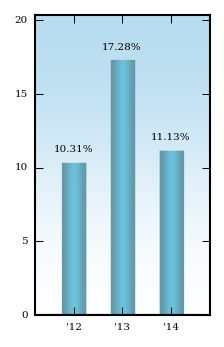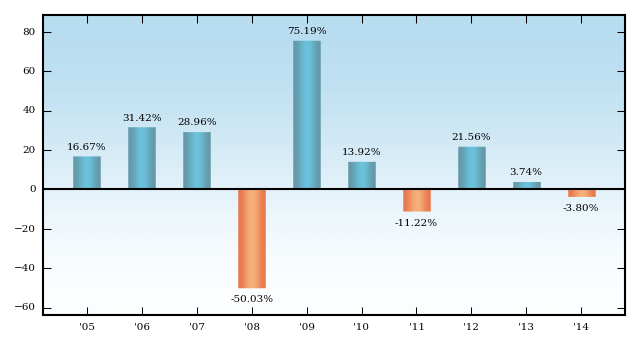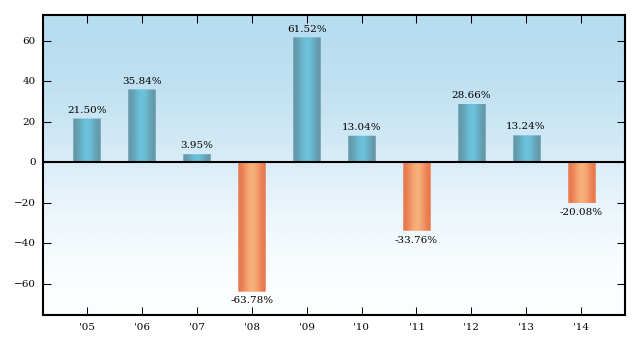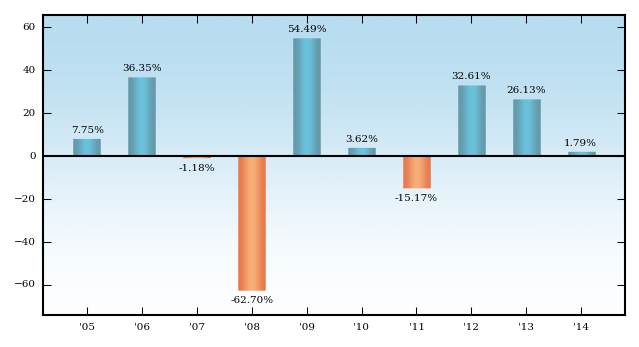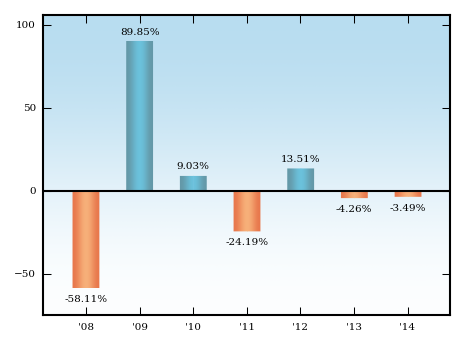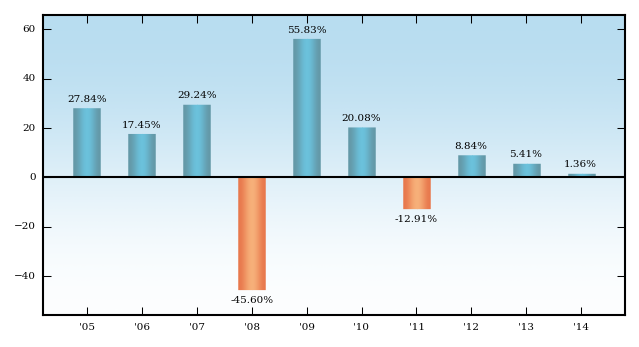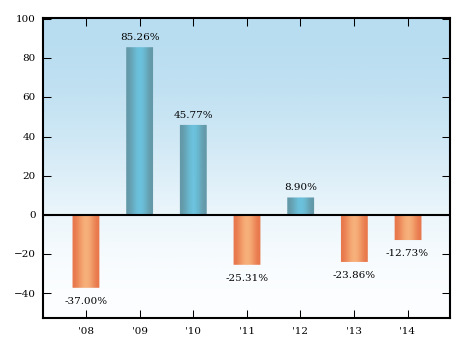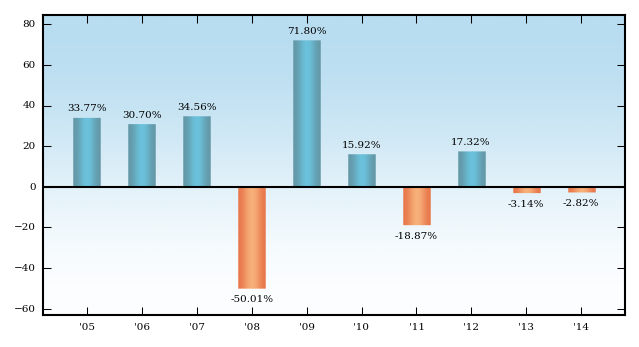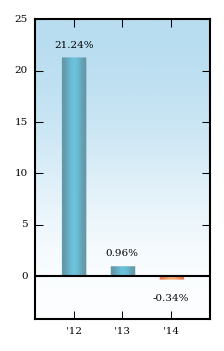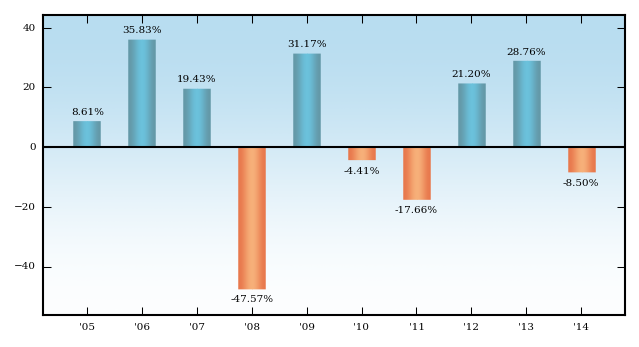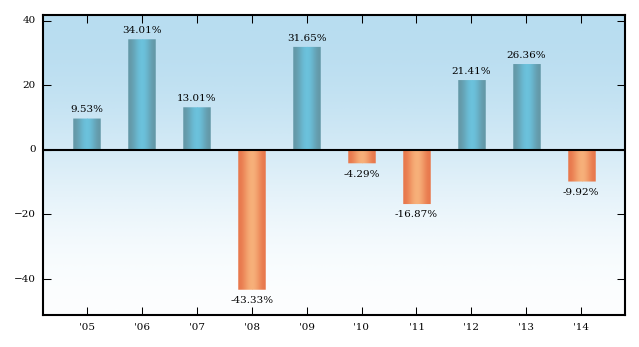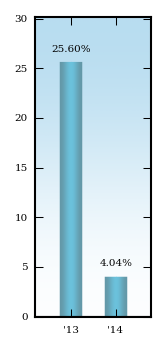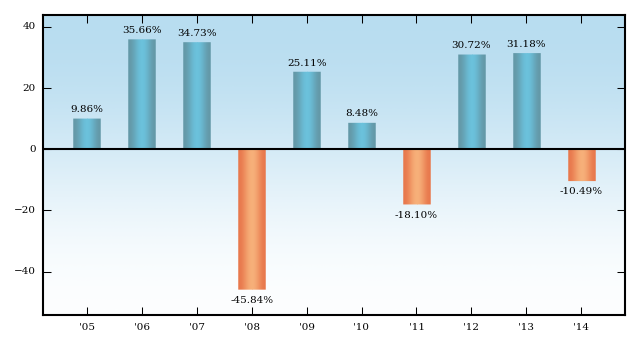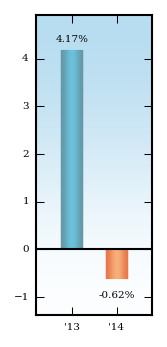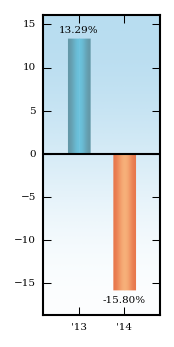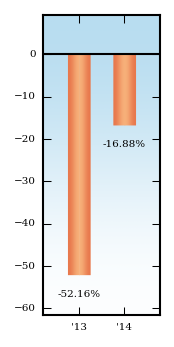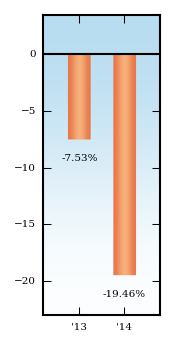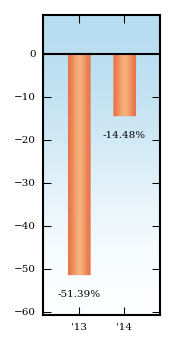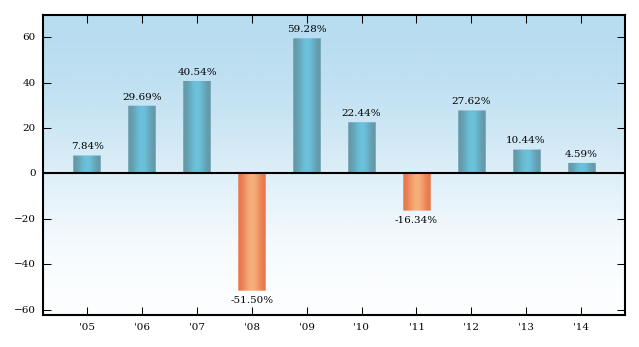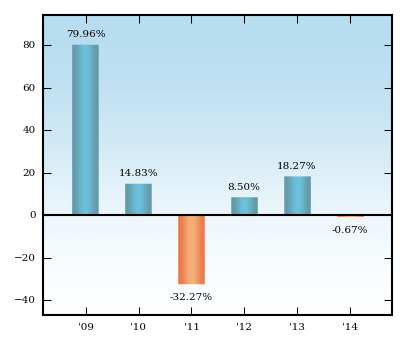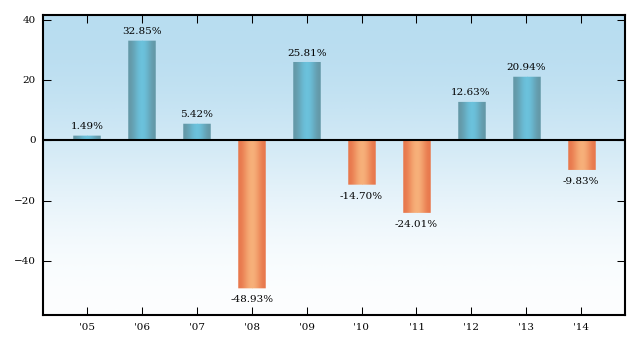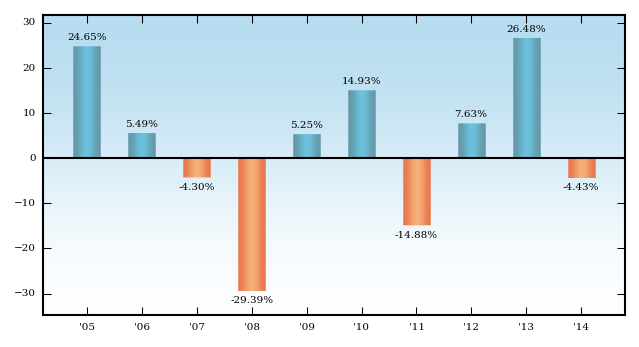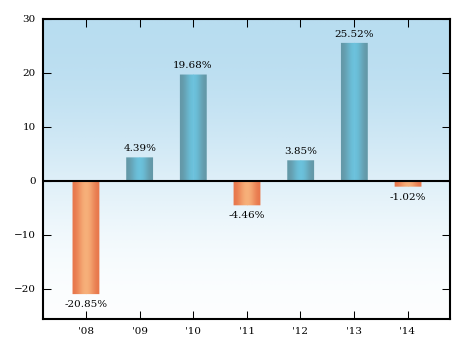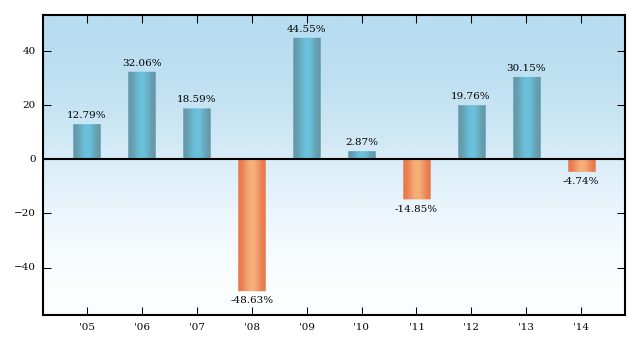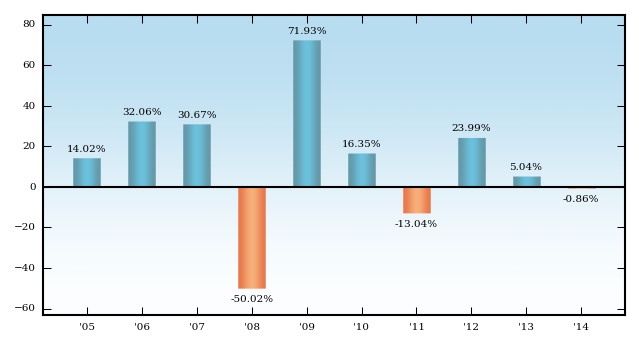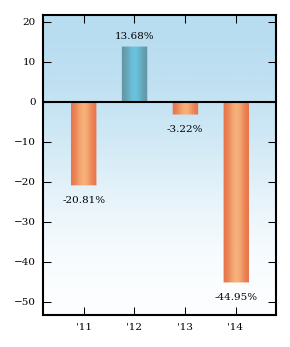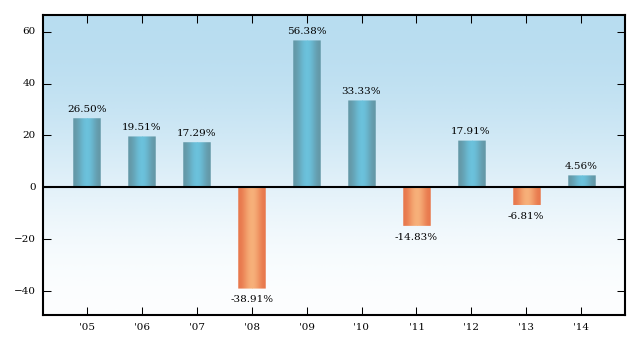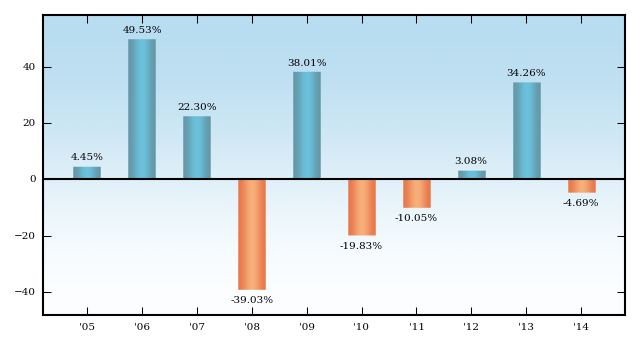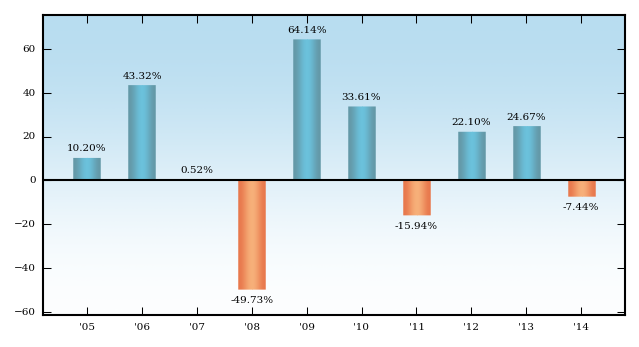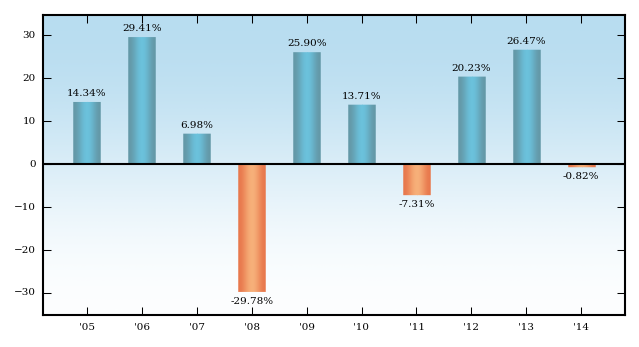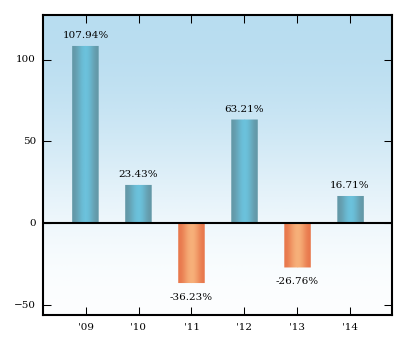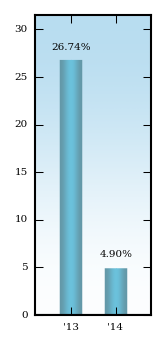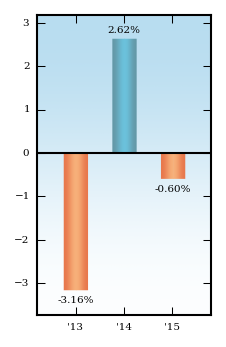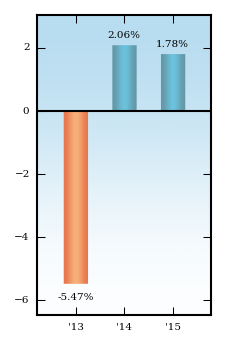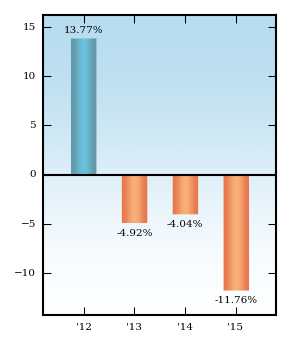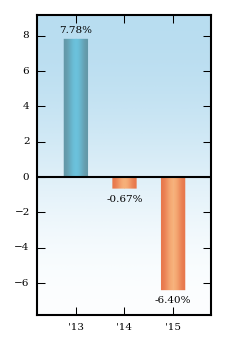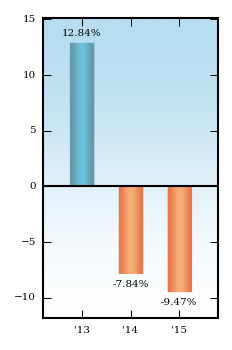K-P\G.V%^$N1^%
M?Q U$GOP8V0%L$7 *6*@*DU.E6$7Q"#"R R.QU3,"7[.QFE 7!EW;@J['H]#
M/^([%<9$(O3*'/8^AN.8W=AOQV6,E\Z@IS=C$LS@M) JF53AL\P9(0T6<#OP
MDHR#-/=#8HC4.AF/!\5*%'X)8"DP!"N17G(%"\G#>;#KV0J\_??;=WVO0.;@
MVW=IX5 L0_3A*O,;T1_A4&P/!RN>?JI_NO_I+9%SQ1
M#' 7]@(G#$<;WWCV(WH3>WHT;Y+ %.,D5Z^SYCH*_-R>*',4/-TP9R;#1Z:'
M0 X$AP8;F\+1PL9/T<\ Y$I*_"XX@B-4EAP?&$=P!W '4I?R4]O7*CXI@
MTKRQ)VJSD'2#*)P# >6\/W@ZXX#5 ;W"ZS"*O*P89;D?YT!G<)!PF807U5/O
MJ !U(LH2>D4:8&LV+TOF@2*V%(P&%IXLC&"G_5F >]R#-\'Q^1FL&9:5!>,B
M10Z841,!V()=3\]?,VQUQ,"U@*S&29;SQHZ"'#08ST?OX4[N?W48Z.C&^Q($
M"QP(]CL'IA<"S8 =0[0)0R&+I1.'V>)E2F2VT8W,=U)+&ZTH6E\9DF->!E02
MX4PT(6S:-'9>/Y!-=F&F=11W9#QE6$$2P2)D*3R'A@G2\YD_4./G?8:F0CP=<%
M_P-&N?2O0'Z(%/1GP*)FL*R>3C.O!_9*("SG,+'H,EJ6E.R
MS>78S$Z)D]UXUT$XN\3]R4!F3^$8?'P'B-[*6]2@*5G%WA70CS\">96S?+D)
M@VCRE/Z,0A#O$Q+P+.\S=Y] F[Q]H^A^XAU#D0/_029RF42P6W!EY9?69LIN
M5<=JHEC]CED0!RE=?=Y?..;"FI!N+"%"M]T>PUU0Y7V@V?)O":8^TC\:766"7KRK,%[(FQ+K\1=
M;=BZ'K$ZEHMXO4? 3P.\3L0T+X-H8?BH42OK9:V>D"%A9T;3(B<205T7*0Z^
M3!8L%9"DJ]_*R2?DI_
MH&(*@J8\QXRM+7C9')0#K;CB?8'W3JY"O(# >7&O4&[C<4RG:$>2AH4?T\Y=
M^RSV%%\V L*;!DP%P&?\.2JC.!>XAW1C;OL-,B^\FK+)8ACRU*8H0D':XZ_Q
MZLO=P7/[P:(8/!=B^]9"K3%IK!:W2=\AOJ4646I#W'X7Z<;,EJ_A=J/\O48[
M 64RL ^\-F $^?(TSEOIVSCZJ4]T7&05NV2H?V];)'P*&>@1**D<%8D/D)C3
M"%9L2%NIBF9$4J*"+..=N8:?(2L-:9:L/0''G)/%[
MR"_CS'G_,SA!=PI$O: 7P3X@HF%QB#M9>E7E)@!J87$\599LH"Q9BW!:$ *R
M*KA#$YO;.(RO6. TX2KMP!:DVD(C%:]$I'F"TDCHZ$=S)9WGD<918L,Q #MG
M;GL53)[>/M?*%H3(#J)QP=P#[C.9PR?Q>+="9/P#.+NK$ 8IZ>W6\/QS:Z!3@R!$P\=ZZ<#
M8C&66 'ZV UV>ZPK'!S^)^D/2-3"C6Q:>LJ;H18?TWVV[@)Q6M!EQF&@K&68<\&:' WR5,@#W@F*78:J
M)1B_O&GFXH1_,-F77V5-!IDX*@Z$KL J635(@[@.T$J%*2F(K)8K N<.WMLZB;@WQO0I=L:>UUG_UQY.A:@$AD5LBA3UGMP%4>9Q.4J9)Y@.KK=[
MMVP<8>G-[N,-\RC"U,/CM"_ST*(E>"OOC*MA5ZX/02'.?EO:T(U7X//*<*]8
MMP0GLIYO0"6%-?1<%E#^'M]LS= ;XY)NLX7-%A1@YZ1TH3[1^'">L(LNJROO
MS<<83S'V&G[\HX_8",S1:$0J-HLW\SR8!'/1AC/&%13W,%K&4P9(XAD:W[A;
M,@2N-=4#(-7$F3_FP28AB-0<)D?WR&@"FHC)0F8&!I.+"PHH)?8)UF/.0H=U^#P"1D$-\$-#M T]0DE)>L AH;;S3([R;)P!*<#]G^@
MK_NE'S%>A.N=@ %',,CN4LH]2N;SA*SW,GE6%'V@G@#X'
MU$L@@YY3R[P9$-V.5!GX1V]H874"THX*>(M^R6B+,TQX*S\O63.I!#E=-0D&?$D^F
MOV"1[#P!RT2K3=J=TD/=D30:GF=/ZP.].B6+%)\\H>$MEMOJ_-B-<&R[$5#:
MX&AUYUGO>%#OEX/F(V&]QB+(23)'5'$LRI;M3]8TUX/]%[> ?@K!&_*Z]$A(
MP4M9VU-SR7[ VMO?!F,?#-62.L$>/3%"B%Q(69R@#IE:#@1YFN^I O1#ED5C
M]4HBK3B)=V@,(6084CMD7'8S01-R3)@*Z*\^"@2C&?,,B"SI+>CU3]'+@^XV
M_)B$$V%*H ;[0&V^DH\$=:A)[7IZ1_3YT9'!IL9($G!O;[RK! VM*!#D*%8.
MH'\7X?A+Q(AH$<-T)^$XA\.\(<^E+T9XKVR]-NB91(4U(Z.L2A"@\],8CEO9
ME#93]-#I&D[#,8HGS5-M!BDRO 6!9'DRJ=+'+RAU)\"_H@3C711GQDTG!F6<
M8X@BP.5&Y1B$,E#V/#.*Q#@*0%=#'Q?A!7E.#@/46E#H90Y6A\^C;2=/6$QJ
MQ%A1Y(W\^ O^:,;L#=U0C,(F:3LY<(.:RU#Y9\J+?@=:/>&10% C8/CC2V.@
M$:2?)C&PA>P&U("Y YLX5T,0IXH=H9#;]"KDS2*K/U/,$_[SA?[9H#UY A8)
M8R[M4?/%(I(AAX.Q ?CR S=*"PM?592$B#G34JVT,EH9G#R+_AZH*2B.V-/&
M]T#<,D;K%AE95K_PWI(ZA(AXN +RR(!K0LA"WY
MIHD.,D92FH3RX1B%$:D?2..3Y#J>"8>U=K:LI3 #5:JM<>RQW8CC:>4==2HE
M7Z9\!JC3Q3/R6;(+$J8)(Z2!.($0IXW)R&8WC[4*"ST*@8 +QWCG[04-DJRJ
M6\>HWWRC+*M+-\*K0M(:X;F36(U[$Y!:P_?0SW,=W6 %H*,W-<3JWO@P1.=@%7M4*F?0_T
MU *1$ UL (?WLYSB"U![2,9C@KU@?V9F'-;AFSF JX%8=@Q3XHW"U<2$J!$/
MM;<&C7%YU952SV,MWU%"H7;.Q:M88TR@"$"P_,W!O$JA:<)X%#7AHU5#-(Q[%[%0$NMR,A
MGS3>3R';>H,ZX).T=M01,I:ZX$_^!7HBS0?4O82B_&0I!?:"RR!YJQ%Q<
M3U75@3!(4PQF"%4@ZL3/_9X5E%KD!OI2;C(TE?*T<*"O*AH/"QS#GD^(79,F
MBO.>!R E)NI*W\A5F*;)G$*Z:+KX7U\4X8,G,?5N8)>[$L!;=1JK9>2C:DM
M?<>IYTY-K/CE6W1J5.N* +*\V^H.30NV",BC+1%[U9"-,*_QE) F3YSV[;N^
MP^Q-/)AZ#=-=(&[Q'.EJHISB;=9$[+01&+3\2!PB0N%V&6C8N5QV#?W1ASL4
M)Z!4:P,CF83J@T3
M1..TFT9M! Q+PE/4>Q5]9HLYN1T*\G]F8?WD$\@0:3[[W?OXSKOX,!@.O'?]
MHXN/YT,PB4X_GKWW/L*G^*_3_N_>+X/^L7?Q$1_TWGT^._YAZ$EE@8OS_O$)
M/-V_ *WJT_G@%)/$/YY[QR?#HX^?SR[P5V?]7YX1!N_]NR"7
M*?]P*KI!W:\D8*!V"32(T.:EWA.U<4R93TER9-@',Y;$36UCV)&_J/4-F,-GD:'RWJ\.I<=VO*)!(#]:(6B#"[>94Y$U'+2
M5-#L+7;[256_=IT'&M]5J$+)KE=\G(+%$H)WQ6GGQ.[RTDM@<6;BJB\IXB6(
MQ0/#P9GQ--*^38702QAL*;+2XMS"IA<)ADZ,_1K@
M1,_4WHVTL@"R-?W)1!P!=;]2R*KE"?0R;%1E^5DSUZLNM&.C83#"@2Y77
MX+NGO%9\=,)Q@+46Z':P5;>Y_X5#"$"]RP4'T#:V0++H)IY.T<3+1@:A&S9Z[@#K$3\)4C*OF<8D/A8CZW;DXQYA$A@ECL8]T-"_"U2U9$I!!=+
M' 5!&!6886V:1*A)8D>B4B'83U_>0Y0LH$3,+A6PR2^C5T]XX _)-5REM"2-H+6B_1F@=SDU?>(,'8O?
MW>(?Y^#J2EZ%VC>=&>/GF!;#;-#_$M2FQI#8(BQ,IZH94,]0'VOG=J[<\B6E
MX160E[)P0]TD7*!V@@75#]H!PBX>!?>6+YYB!&8
MF"EMNO]@8L-D&I8WXL$>&Q1HKC<_2N>NGR8!>&^V?R[Q%R>V]D!)G+>H
M+2IU7 EPK9]HQ3D15J(Q2?B$1^7_F- 0X[&0&$D2PHSVT150ZD3/Z!CLTV&/
M/OJU!5E38W.N4SEGE<'Y.4%>Y*&VT&+,6@*%"#B'92E5L:Q*M%S%H;OK?:2D
M1J5:3X-KY#7L.: 0--DZRQF!J 6Q+61J"*539)ZU@1UE+3CFPGB6$NL4)&B(U8GI;BYSBHWSHQ(B>F?KX9M#>QBACX",[,TNX;EF'H\W7(8VD\<$U
MG$YM%8ZT_9&?PEDA;R;H6*$]G"QTHZ,/M/BQYHL2ILSB6X@274B#O3%I.=B)@18$B9N2!%^"=S AX$F039:
M86X29,^YZXH3"Y,TX"V:3N)I+B:T5
M9"[Y[91[PWME;6#MG2Y=C^I$[\NWN-1&E<2 MR-O";7\1K>36T':3%6*=6,2_=%!@^CMO3=,O448UR+4$_$C>BG&NWP4"V:T([62C!
M((TML#XGF#/,Y@0T8JX1JJ,RCKX(>,P,)S?#YEY
MJ_%KVX*$C\4R"I64JDNC"U,;U7%#=>]X$2DHA2*OZG,1EL-LWP9?6#KS"XS0
MP0VG<)SJ[-77=*((5.#$)V@XS0()=JAE9'9 A/C8;JV?XK['Q.#
MI$S63=77
MM.N^GYR8PE0YR%T!P9RVZM*EUM:9JQG_* _ X493G>=>K0IQUO_U::^JF34X
M2:UP?+ Z5'4'9&D]9Y&X45B2::;>!E9)BN$O=&[(52E8)M5&?8_8&V5Y>%HE
M-;&J36%RP@'C0!6R=G!V?' V&WF\G%Q^\XWFQ]F,
MM="\LNUH1;?FEY/4O]90J+O5=E!CQ?*D/5#0)U!
M\-+<50VE6HA$9FJ&64K]QLDS0S-+K&.YEL"IC$&QX>K'K!D6F0E/K)$B-@U,
MD[2D;3K)\ZQX<[Q-3(7>V)&/#^ID"(T8I<;0Y,)ZGH13H]8M"15V1&S)]KPM
M5+ \L=M2]TTLT033]"C@R YFYV#ON%L^Z"WH078CV.45Q=4
M)(+KH&=FPK77[T=U756H'OO8C^%VD:'^?)_*M;YX6E[YDN5*T=S!5ZK5]QNP
M&E/F@)Y?28T0G!/H(6",W$3!WYY@%F[DW_P4@['X!&?Z?SRKTY<4V=H=)_-G
M:1(%SX;CRV!21($[UPO4H0B+P->]?H%&7C&/5? W.=Y D___O/]#.P*OUWO2
M?M%-5/$GVA4A*J8I(BFAJ-(&O;K#!C4N=U4%GFNJ]%<+/)
M_SO,I*$N_\-FLHHZ/VY)?E/D.1>S.!NGX4@0JFIA,Y*"6 B(! TIUYA CI\D
MUW8]/*.(7%PZ==4HEY? W(J^*#>B5U]"[(BSV!R%D2*$T%U\CGM!2DJ?QW\>!X)D3#GO[[F&]BV#O'='>5I3Y4POLZ^6J=5B9P("C64Z
M&I\W=$%>XLARMM65E*-2"<$B-QY=8]60?MC#]@=?6#29KT3+G5B=,Z4D8FH]
MQ<<-BE&"%WEK:6=_3.)9XI"!OH!(*EA)A,H*D"O<^AV,B24'<*_+]7!+M2BSIR4ENVGA
MJ]V8!F.DVY@&VVB=-^9;H2Y 0Z_V'A%U>;46J,NWV)66J,NKE:(N)O4;@0&,
M'.\S"'QO#GQ$^[/_YN4KM3\88A'.06[][+OSZ-4VV:2ZK
MG:O-%&FNAWM[AADLG>O+-X\X5YM/Z7U]L^I]/;9TE7X\&7*X\_[!:/][T01-
MN^VTONTR'D(N?Z)E/(22[K6,CZAM*EGUW6BH819JDKH!VOY*IOM@6EDZG]7T
M9W3;'YM**0]HV;J"=MW&B]&Z(3-W/RQ'.S3U[1Z,@)HI-?/8#*3SIVG8$/_FD0*%GF$CK!NN'\Y=\?IQ%O7UHQS
M5BCJPXJ;*O<>TVU-).J+>B%3-Y3:ESO=1=NVJ/V>LL7H5K=0T9]"HBPA]>]Y
M%=MLXD,"UU6FU8'7'7C=&KQVLU,(JL8)6QO0'TMQ
M27JJI%B\E8JO.!P1TX:C2@C?:]5L
M6R^<%ZN+6G-["%]*L"6T:95!O 2['5%5E.LTS#&#V3!H.4+AP*IP#O=P;+'I
M^!.)5<6TK=M/( ZP-HW/?:XILIK>S;&/MV/X^(N]W0-N%4NJK=#MQ,?B+Q;U
M_MEVQO_\M(DAE!U<=J@CB7)$T
M2793DHS:*W-O0JS,(RWLDXP["5[']1?(ZJ@BC];H(504DGF.>CGPIV)NZ]G2
M8_I_[>_U8-9.GH>*\*8D,A7FK?O?JB2;F(/RI0LP.2)ENI*#AIUA=25B&:8T
M*>0^Y9DY:A0WG#O\3Y4;;/E(:19^0V>2&CV7.VES%H,_#T!WBK"]SNR27RI\
MF:E7'=O87='NBK:\HJN7%8<=(7:$> ]9L1IG@^M LYT-[",K5?9Z
M#$]#A!;%#M=K""<[TE%(%3QJ\CS<#?V7[5UETI ,N5N/"KLO7&VTARWP$2+>
MW]L[V'_>&B)^_KQ5M,<*=JXAKO ^._=MHAT>LI/WBG988>CXRPY][]#W#GWO
MT/=U0=^W%YE<95[N?83G2D(,'BPKEX08/# RS(VTOEMDV-&'DU\&WE'_TZ?!
M<6-4V-&'[Q]-M2E_W3,J3'%?O+W(>T'C^NY4W6I.JPH.68WFWSP_6,!OY*;Z
MF)X'X7Q4I!FI/-]AOCLXX7V>\/)IJ06-='BXNAD^Y)2?OV[TA_M[W\9)40[M[)P4G9/B7MZR^UR5A[";UX=-E[GIJMSW
M,M^7W;2YS)]4'<4+H!;L(;&R$EH:\5MPP\ER'6!5Q-O"5WH,IX0Y(BJJRTT4
M9799R!^!N"ST1U SF+@-$CIM YYBF7_=H$+W)I#UZL,U=)521[X;J
MHS1YJS&Q='#CHM ^/D1@N312407:93MN08>6! ]2M6,;0NI9M<8=NM&D%%K\8^LG>+C:J<[#ER
MI?M3U3)L_%4]/>%;5V>>/828GK]ZW=: 7"7W^KZEEJMDW<42=;%$71G*&GAK
M-9*X(2KRX9)X!?SWV5L5G?X JO
M$F_[4W 89^N6<9C#>W"8NT_)V:XE4SHX6#ZE(?;:"F8W*ST[N%+C< 'WQ](G
MY$5A56,L3:&B7G/@U04VE:+(I2-+^#Y >UQ?H7_KEI0/=O7%S+$^F*JS]2.8,T^E16!9'RTW([-54+6/Z+,CYO%$\JLID]87)V""I=%<^YO$+LG+7.;DH#"[ )BD)CEN5Y2HF'OOO\3XUSZ-7[LO*;[1:A/)+
M\+(&V+$V"K-+I##EF5ZDP8[]Q<)/_3FN@X<#6V6'K5FCV8.'U#[:T"RR<*9R%WV<7VWU_I[G'R
M&M]#O=P,+XWITXIL"AMP4P]F'U4K_CI/.!1 VA[WG$VAB4N=/#R1!,XFGD2R
MF31?[.6H&ZT:)FJ;=-+D&-M1JMHA5AOT*VZ.>A+#;9UP)1Q#-@VKP3O1V".7
M2!^;&%-SY$QJY;#J@0E_3%)H0A*/-O?0"D]XBSS6"8B8 _L+=_B\I8EK,@DB
MZS+I64^<, 2>J^_-0MK @F"8W[
MCP).\/D>59,Y[-6>%KTUI.:^1!621J/X@<&"#@X]T\U:-^;.?O*._-B?^#U&
M(>D_,?X++A@P<_AK,+M9Y#VXC?_M
MYVAJ#&'V/A @S&V8%,#*?X:_8;PAT/ ?/&#/N_##:WS=Q:4?\B>\62%N3!^V
MVAO,0[PNF?/-SS#V))GK-K3R\3#')W=KA0K;@LQO./6U1WFOI.$ @XYV2B+!
MSFW2A7^U'E 9?T%H+U8I4F_!$R[FF&24^Z $(>JC\GR8SBYA(_/+,;+04A[5
M>.G[M(221N54K$DU.L^<$=( .'M&V5K2+A>(M\B(HGK$P*/P2\!-<57_4+0&
M,8BK$6="F*R@U"O[%E(4%L 2,PR)EBUX(_PJ#*Y.GY; >
M2PU+%*J.H^S>IMUE1'P)3M>1H!&>:L"8K84T.@FNCE
MP1S9-XPV"::@P*+#:Y%DW'R:%6>E X%!$Y$"D.*Z,? ,=Y6;PS9NZXG:*B37
M (MGQ2J+#8]F'+B1:RQ&@2T"B<5Y2,6[X*Z)&E=/J"":[*[8U &9A*/*8 ,&
MS>X/]N>9\EX&W5DDMF@& X%SU78]/7^M5*L#9MW/("ZC(,]1G9G"_^Y@:W);
M]P21]R4(%CA0#4R!O7A#N9\P6Y0VBJ;4*4I6N@KKBQ/:)
ME"H2_Z@EN%(L%:FI%N\N;Z;2>LS%;BRA3JVZXXF/[\"0S/);U* 2$XJ-['W6
M*6G$FS"()NS)B$)01"=4]I@-I;N9C8H
M=8T$JU\Q4]JV4JDI.!>.,8)YY]X;KJ6'H)W;/EH+"*?5=(-PX^UVJA\2J9!5
M%X"@2^;AN++=NB.VRZ!098;O36'&.TWEQW WV.T!=R6VRXWGQT&XL 4=,Z!E
M0SW5R*]L6K' &>W7[9B2G.RWP3[O"Z/@9]?^0M<1QT$V2P<2DK)ZT"*5\&D.>NZ
M5C<%,: SUC7D8QE8*" 6&/YOZD_2B0Z'NNG [H^-O<2+D(,^0"#P8!))ZGV;]AG_Y2E+J@:P+0*% !:\,"O9FD"
M-,6VI.C4I(V@I@LF)[P;%6O)'$!G+IZAUN%J*<%,&_2)=_".19%BS(D<$#Q"
M155I$WIU?&YWN.O-4%.*Z?I9M$M8J:!\
MYIE%Z.$?3*?E5]D(E !#9.?"*EDU&&$R2U;PK^>$Q&;J'JEMW76@]&]=QJ\A
M..1/5<;OOE7\5N9N<*/8-MS=@'GPJ_0A#8LY[0>LQ+B3SLG**AVL]69[,JOU
M>_0%67?-YYXDE&'Z483*+:FI*;&]&IJTL[X,%%'U2LN(B--%VKHH5Y&Q*^.$
MF4+YE':XT'O&EBF3H5.%H8=
M@TU"*G_/J3W#)5_$+"!/"8@P5X!8<,12Z45)Z-Y1!-*$3MT66$,7L>>-L$.0&/+&)5P1Z4
MD3%6=*<"!4TG QB&O+:+ \6Z,6Y!I60
MT$5\R$ZYV M4-PRG+*O9U$';-CA&9NAJ& H:R>T!9<,EIRY#@A
M)TSFF('X;UC9I."?,/<2WY 0B@Y@8]=9!E';2F
MLP$CTD8-53?,U35=G1BU.DIXY;_0#%:.-:TC:T=&3]P8/9EG3RM_O3J-NJ?\
M=8G#>UJ='T/P0X;@D>'B.'4G68;KU3OEWI% %$ *=4.K.\:SA6.X4>[00)";6/E"_EV$XR\1 X1%
M#-.=A&-T,MZ0M\\7=*-7Q@4:E"4BIYJ1D>4F",KX*>;O*U67-YM@-M_#\()P
M&HZ1R\:(J:+]KDKNF5>T(1#0T2=5^O@%A4X?-HA2O/NN$P8"""J@O:Q\B/O^"/9MI!
M*^!?DMX&Z9O5WJ 'BIO17G1[T U)7P7"&J4HKUFK Y"N-,D#L=>=@/2;%ZR
M1ZRK(?UL*LJP;A&#%4I5K'FJ^07\YPO]LT$)\*2B@G#5JJ>\X6(1R1#^;A19
MOOP@-=/"0B\5)2$RR[14*VJ,+"_:A4FG^.,Y.;SU*N"N"@@"
M9!3Q[2!RU,ZSRE VA3DG\" :NB/]++]5 XX-LRR8\L4:5*+'Q!>@K#M+R!'C
MU'IHBN= >IC\8P\>.R0BKF'.\49[B855@P'X9-%8X%
MRML+FA79!K>.4;_Y1M%5=VZ$-X6$->*H)[$:%\$XW"*ZAGZ>:T]_'HPO8P[I
MF_O1M(C'ADDJ#L%\=03',0^4=@\;@O8&;H06]J&96"SRF[COQ!'BS!N74^O[
M((&374'J*CNB2W[> -#Y>?V/,#XAEQ7M>A^:)FQ+%/@";#!2C(%[
MCQ4:[Z;WD!VET0/FPL:*1WL.9J<##J1N5C#+@.? 5IN"T\60%7W?.
M W;TU9!<2L6^XL2;%7X*+"*H#?A1,34^92JI"#".+F7'GD'[:GUWI.:0TU4-
MU8AO2DN*BMHHM)Z0 Q[%@G!+VV(Q%SG@L[8NLG/4EI+J3_Z%O1-Q/D!9"<>H
M\U)$U(#40A.%&S"JR-G;W-2#-,6(DE!UP9CXN=^S\KF+W-S99Z)OZS!:2^I4
MO74QI7VE$](2R/ZAAHA6<#A%@! 'GJ;)G NCX73QOXKH1%IQ7 2%07-<VKQFPX0QP2/\/P+AV>B^.7#Z/*5>M5\N7DS*!/Q:+"$6TG +.2
M3,<%NZJ5I1#8$4Q)63*112 D 2:]47$@01J2&5!"=-HLR;B"(UPJ.5%XM@6BMK+P#3)=5% 3SIPQW$GK0M
M P_/M:4O\7YPTJGU4P(72!^%A="W"JP@+9BR1ULOXT(PXL;E()*<(8X?I$FA
M ](4M$Q.*1O1)0I7=K&'"?%"=SJ>D@-]@#HM;+NG#&5F$S(XA_8 0:/_4'MI
MU$; L,3_32"_2M30G%JI$H*S/[.P?O()9!BS?O:[]_&==_%A,!QX[_I'%Q_/
MAV!+GGX\>^]]A$_Q7Z?]W[U?!OUC[^(C/NB]^WQV_,/0XW+OWL5Y__@$GNY?
M@#[ZZ7QP>O+YU/MX[AV?#(\^?CZ[P%^=]7]M<23A9.?(C?0[TK*^?$!'7/V2
M/ L12 /@<:!+EM;]2J*$:I= @\AMO=1[HC:.[^I3
ME0UN+8&9HZV,!O.PF+,)("JI YB79*!@S(4^!N#&=
MJ&A>>LGO8)4CN.3TOE@\<9+],XVTMS>6>R;Q/,^EQ$"A'>,>
M1E=O@D&7/-4KN7O&/ UC+9*NL"%PX$*_<_\+AU0 2\V%M6F+4-!]=)Q/IP@7
M$+03SL532[YXC2
M**7ZRX*K:Q0$>!X/_"&YANO'!2_PZJH8_DE"&ZI\ 0%Y_C0E\@&9&V*MB\4$
ML@$U Q:M-^(L,-6Y9>SEU/2)DZ7LR@*-.FC(@=V5)!>U;SI+R<\Q18E9I_\E
MJ$U3*CB1.-9!YS:H;*B/;9Q0]X!LLZ0TO(*3^J,^7F)(*;@ZF7&)\VHA8P43
M0H4%>)T5.K=T3'CC5#](0(X*U$?>I!F>B238]3[I8'+)!._!#>$
MRL;D4>O'DN"5"]1+N+3Z03MDP,5;6VR"Q+F!2C,N=:9@=>TN,'D]MD*7<1J=GO$L3:[)Z^Y+AGODNO"M
MN1+J6_.-,[X[5?T:?"U:ULKV+B$N*-*$)<(-I=@'[V!O[U5)?:E[N>*TEJM,
MFQR)Y7" 23!B33"G7'(D=QW/*63?LY')49'"3XK<-5+%C?-OUVO2-U[UQLEQZ2Y1B3
M3L,/]M?>=0!:3TQ*JU2=RZJ!S@J^[=4*0==7T1Z27KJ'EIW\"PB)6T%'-R[9
MFD3$OW2L;OG,7%,7#\X;3-F1%0XX2L!,N%:P.*9K^V@L6R]&K3UCP491\J7-
MX6)X8,>Q=AIS,"@[(W;+V#!ECE@SD8,FBYF]B#J^,':A>"O93BP6[CI3G2^Y
M1YJ&<9,?4 Q-Q(%#.9OF+>JFBC%O31_8Q QA:44VF,..7B,* T#$6"%+[6+R
M&N/32EJS^-X4NGN;!NTH#FIXBNM-8PL;R\W$#1 =^6YYG3W*1R+SID2Q.3H@A8<"K\G O
MG?@%^C@I#0T/K#IY]36=IQ]NBJK
MM;MCA=$6,5-JP#GH/6>1N%%86$37!?/'XQ2]KW1NJJ(5P3H<.D:5C#V*SN:.
M5EEF!YDU!1H(^XL#QD4HC0HK+J 3+0ZNN=0Q9V*XT00FH RY;YBIZ$[NK&60
M7&6,('C(@*X*:U-YQ\8QID&L(N9%JR2A2X" IKI2]A8NC*G".#'JZ-:ZM94Q
M*#)._9AE:Y&9@(6:JZ@CQC!BSJV$YXZM$#;V$,54\X6A9WQ0^].4X"!:$VN'
M2^QX$DR&>HN$D]J!&24#Z#9W?WEBMV7?&>_7!',42 6U8RHX?D<"/G1VELJU
MENQ7>WCVE+4@%D/JE3@#U:VNEAZQW"_G934%FJ";'F'9
M4R13%JB(!%T)D(3I&!&]:6&IB[ !,>;-2Z8O2S3ZI+%226;TPMKEN-AP>:W:
M-6)F8_(".3:1XX;8"8<5YL(_8!%V+3T=8,6%)AOT<"N#PF1NJ9)U=HG,H:-C
M-U*>JXXP8R@%!FC,([/#CE 5)M2H'%]=FT3F:S93]FWOZA3F%HT*5UD(UZKJ
MON&9Z2:8"'M7W+?3MEWQ0/=Z?%E?B#F<_.W)21[,_^>@MNOV2VX4WC2O;UN0
MX'!;COW8*BG:CR=#]MCM'XSV'YT,GE?)@);3=HJZ=@=N^$-;QM]K!375Q;FH
M1OV,2B3\N',]O.W2-<_U0870FQI6K:00^H-FUM3 X_O/K*DOP4IG]M J( V-
M:>]>_?QM$,U"4%)X4:3$2E2:5&@[.3UYZAT9699*T"
M+-E/V)6(_'G6? _WV@Y2KMW84*A=:AAS5F&>8"*5Q)>9:K@"H[]-"^!1F&Z'
MSWE*[C4,O+Q8[R/6ZNW9N3*,4&*-0_3R=&5[E[CNN[*]7=G>KFQO5[:W*]M;
MJE3*>7SD'14 NURY]W53Y5XW@!J_K\WQHZBI]D5R)=!BR:[()(GA!',_I$C"
MRBQ5S0LUN%/WMERJMD%.WJ=";8.XU3.RW(3VE*2HKUW"5Y7W3>+:;VFT_&;!
M1U"N!2R-0_A6U6VJ4P'EVU<+[@KU?M-"O:OMS=25_;62I;NROUW9W[(/855X
MB LG/00/.3\Y>D#3-W(23=$6G$:)G^]P KQQ8I=4*,O]U "4R+WGCFZW(R6I
M_T<8]21ZD/H"A3Y1 G430-Y6A@Y
MJ=+6GO9T,*6*K!]RI*<+)_2\TR0;@YUQ@J$+6#C,E'XSS^B<2O?''-XXP8T8
MX@>7?E@9?@BFXA]H+I9^JJSZZHBZ[=*]H8Y5]R7"P')L%U?J1F2S<9:3
MQ9ZDS"P958E5?]YHH'I$TD#<%
M=*K.?@!B=0>,YR))88W)GS3JHP$)Z>([.O"C S\Z\*,#/SKPX]O%
M=S3B'UU\1ULSOPOOV+;PCLY>[NSESE[>:'M9Y36=)?F1M#,()A?).6[,<1%<
M)/TQMP% DL#LLKN;T2]-,UP9B^GKG>)Z:@YZN864\]390,>7(9OI&+*C:
M.?[4#J XZ_]J\P%ZCQJ^C(K7E(2@95%%$=UG&NCQBO,9]0PP81SKM*E,85WY
MZ .P@XA+:I6ZH:ILXKM"N[M.%EKKT_JV.:$OMR4G=#7-S]TM,Z5U_TS-S\MI
M^(O&2Z(JU13TU4,Q 9IC0IY"'EF3GMT+GG,V@<8L):E!]/7'#(
MK7>H;Y>^06QW:>5BU]3OH)>"B5)0EQ.K#A5V@>!Z:P3G@'&ES'9&'6GJ"ZD?
M2*/PSZ^ED$.)_300V&JK$-BLAQ*B]_??&(IT$Z+KDJ#?M*H\\&U2YQ\R]WNE
MR[M'<]_L:>O":U8O0^Z6F&SM"^MG\SM0^=[^-\J&/SE[9VWAY^'QD[^_?%$S
M0YZ$FJ!V!NROI,[ @X][Z7Q66A;AP=-=,LFR1@<$_-VGW&I.M]#O\\>CWX.]
M@R8"?G[+# \?;X;/#_>;9GC8/,/]O<>;X:O7+QMFN+^G9HB5B%99 6-8S,EB
M %7!%'8X)Z],B7E:;W[P9!J*7GR?R334N7CP9%9;VJ(OKW[1/C$;%J:J3]-!4XNM3:Q&UOL]![QCZ^F+H3C0+0Y7JT
M"!C1-/.K*XWZ(""B9TJH8VVP'KM;>@*6B3Y+8(5ITDBU'!M;1BY%_H@=>T?8
MK+E:[K:N0JCK(*G :^3,=@[(*8U6X//*^5KQ4.+/)%2U6BFZYT*$Y>_+!1%;
M]Y^N[]1=0D++6_,1^Y+Z<4.;;^]''[W;4ZG>2^LZDKYO4H]<-W];&0CTM%2H
M6C6:XRK NM><4P1^$F)?2PH+M@(8K2O"QI1J>F.*LX=2%X5&X3#-,56G:^A[
MOMO0#HV,=VNHX&O(U\AT,4X)OS$=DJC=B"IWKQ)T$S#.:+W65Z;Y<$"S=QK/V7XD0HUJLT-YOJ J0Q[YI ,1"XW5:30;M)
M%+:E4/W&<&CL+$;X/S?#H6;E@68-EWZ4Z_ZHDR#BLJW+Z?QV@G;\1:-JLST$
M5E1)UU0*T&/U6:<3 K=-E+9]RDV #^]:Y=U_L@74G57ZH/$T;':F^$KDW=TUVS>9X]#;/WZGP7/=6_.G$X
M5:OSX[HX0ZZ+:>V6Y?:FRX/,O42D@I@2/RPUGL=K+7X\-M TJ$
M+V]IO>W\CKMXW$CQRQ:K5CF#Y66^+94 YAK-G(@I?CDZ:W*@3-"ODEIQ3_(T
M:PRZ,KU4A%*O)+HH]8'SFBN13]"K2KTXT 6$)9ISXRWB&1!-T5NDNR+<7RQ.
MBW 1U[XB!]_"!U+1+@<*R5"3VC59E+K!8TJOQ'9J<+;41LMI4F&%/@IPA)NOWKN<6#
MTX4BQNB7\*JNYU$+ KE!D=18LO^=-#BC3E(I8H$&'*7HG#2)L9F(]$-SO <6
ML4BL?T7]5.$7E<9MJH6N_X7^V2 656%NJQVAZQN^K:< Q0X919"O0[DWN-I;
M#+7DW:UEOD;PG++\O52O]J[S==AMMTZZ"*=>C@GICW
MH[$1QI0HO8A\U>"[LKJ9AC'_&N>7H
MY109O&OFQ?*B79@T-7]!N60%3TJ!-VE]Q\R#R%$'_E6&LBEL6?._]C1T1_I9
M?JL&G*M^2SM1>:+DC[;;,!BV3ZS$[LU+'S3TY;7ZIVK[[8XJ_3L31-P@)#^Y
M?<]- ^)R#_.*Z-0VG]TGBR)MJUTC'>':*"2MKF=V]S^W7SJV_)JANN@*8M47
M@&4 ;S&(,U'43(@>VP,XGFYGBGJ"8KA3Z;"<8Q5_YCE*V\NCG?C0M8JL/EN(0JK/A&(-]1=^%#4$-/*5>,KE.OU(3BT6B$?>=
M.&*->>-R:GUO^M16ZL5C,UQJCZ*M6V#P?I93H#"*4V[W0?$S5K];UDB;&8 K
MDBVM7/5N$C1&%.(:Z5![:W1SL\I4>K1!%.'>OL6A#I!5ZBJ/M7Q'/Y@BD;O:2H68W\+5\L7,D8FZAA.TA15BP,-#-
M5/$;N,U*V@,C#/$-MNHNW$>:"UH3,J=4W[H2^\_[N80[YXQ%&#TG^+H(4ZMS
MBEQEMQ<+_[P!$O/S^A]A;+5NN.-]:)JPT]AGO@BP:QMWU!@K#[#5&(2Z>*,8
M5?8TE!S>/8>I5\.3DS
M#%*QJ'!$&W9G5I*I-RYH5\*/!5I1Z56.O=U@8],4L+H3R_WE*S91'E5E
MQV[OJ,8F"P@]1KFUSR\#IB2&/LV
M:R(>V'ADEJ=*NE)?!7( .M9)0$_Z<(>2^97U!@\+$HD^%,[.BK%;H?DI]A@"N,/DKMUU$; <.2Q"OURK%EDR)VP=J?
M67B_M"&'RW+VN_?QG7?Q83 <>._Z1Q?_X!)[N7X &_NE\<'KR^=3[>.X=GPR/
M/GX^N\!?G?5_;7,D*GVU00\]*JO0)N&UC=U)?,SJK#:M(*R]$DQ(15&B0 D^
MS6-Z1)H[HOB0"HCAZC.33-9DO-8IHUX1:HZ&6"":K)A)+HX8EC7DJNKVO-:2F
MJJ1L8[JH%CN[I'<<&9"QC<.9O.H1[74HNIK=J%+%Z4J/< '$@0%5%VN::T68
MU_?O@OSW_$,5HEKW*TE6J5T"#6)ZZ\F>J(UC)O94]::UEJ Z !J[))B#M&=K
M4*P3!SEUWHK>"?LH9N1N3&UTS.XI"X?+-U"=RXZ4 >"\-3OF8'#QSDT>6$Z:
M2;QSC+U+,X(VEOL/57XEWU;/#3%W\Q=MN%*GK1!,9*6H^5QSP/8_JS[5%;=%
M35P(]5O]7>D(/G%JCTI IIN-Y'[6-2.&[)\%7J4+7=NQ/)S611
M& D@=/H!60;L0PT*'V1 D.%O1JHW4?2,Y2WG'P_*D!/PL2LWSI3L=Z>6#\A
M'1WC=RBY%UFD;^UY%1"G5&-4V%5$"28U%',T0-"*[RDECH'""6DS1:QX#CV#
M&@U;_'?PI!"S#5*"- .KC2AEO.[(QSW"@3%8'P%5(*-_%VBRR)2""HR,1I@X
M=12 ;&V:9(Y*48Q$U9'@F)?R'J+832FQ0'Q)&OD#YLX#VZTR\1ZJG/M)0ANJ
M_%\!^7\U8?$!&8*WUL7R$.^TF@'K$#?B(#-I)S+VQS@ $9))=0HS
M_8-V:%"I1SM,FBD/Y;()UM-*\P\F)E&F83E 'X=)G4N\T8DM[%1KL68YJP2)
MDCBX/5JH:DT83(I@AA+,0)X]6["IP N=!RQM9;7 HRNF/1\PGFYZ=E$%6."W
M:-]+\)H4&V)>I/?I=V8@63L!N5@@E:C&VCY!5KP"_M$UZO9&D^ H'(WD^E=)
M.+'PA##.L(0+1;;4[!=%X&'*5ZW?@H4][65I#W5TEF2/J<\K4:5\87@_HAMG
M/TLPA+I1>4IHIZA %%J6(KH\PI 7O>L:MR%EE@6DM8N38)0+T%W28151##Z;
M*X18Z*B>?/TLR^S*69T D<5S]T$-QQQ-0M<#<^X1$;WD+9E$R BI2
M9*K]P*;2KG-<7-M)SWB6)M<4<(O:+SJ;"2JHG2NY\VJ^N>_5+]]YEOLCX(%$
M.P=[>Z]**G?=RY4Z86%1&D!(+$\R3()=D81-"6FC3*L*%>2-;["P&XK9V4R)HQA\ N0P*W(J1M@;9D4$?_2L0+E
M,T\7J7)![;S!M!I9<8VC!#3=:^7-P IA/E6Z-2]!Q3-CLJ7D@))M2?H'6A:L
M8,4#8E5[T1W?IY0"6YXO>;6:AG&S
M1)#(%'>G@CWF+0IM$>/2FCY0YPRQ=Z#0=$;"'LK%*A=<.&02AW>"ZBD
M:HF$ BY!+&\OI_BGQBPOT"U+]0C0(JO>&_4U&6Q>R%=@@D@25D@)&BTX&YX1
MX.W6JFON>XQ35MTE^"5:WACQAS1@@XM978Z+J=DBV&G8X-DV^C+OZ4@"F2%PDVPZK7.AAES8I4;K8HWS8KE,* I#\ ^
MYFE=R1,3,\U)2BJ%A+/7&Y!3@3UP###B50EOO,L]9Y&X45C'<:;>YH_'*3J,
MZ=R0G9![.=71;CVZUQ1BS9GV:)[WRA*H+C<)/X\#U:2'LK- =2HP7^L:OP^^
MNYHJDG\6\HLR4"UHXE*2E=MT4HE"=V6\*=
M\=),,-& 7#EV& B''$F,BDZQ4J6II+R./3Q[='9U#FES<8I5I).Z.;==.FF7
M3MJED]*ZNG32.O]WET[ZB.FD*M"D#0INH"RKWX]CO%CA;4XSG4I<&Z/@.IZM
M-KNP+@2N'A,WD'PKM*!+HEWS)-HNG;1+)[V=0+(\F53IXQ<7H%4,!C>=[ID)
M9#*X+,H6N/KSS*K %P5^JKS;0+=YI,Q>R>VRRE7C\Y8);=VUT8T8^^1QZ5'!
M60DPE3KD2=J.G77)LUWR;)<\N^KD6>IE%OE;PZ;HYC1P0K&3.E
M?U-4@)^YT0[EY%-+49+Q=(2P#%\L%L)RN:S#+0FK_ M"UM,KB]SE'G>YQ^N9>]PE@=:+Z"X)=#V30*W2ZA>&C36(
M-OMIB^F9RTK0$\662@<^RN>6#"-'908A,*G/P\9+Q$&JS9%A^ IJ[55P3 +L
M(=!>RET7K'C8,N9NC@(YJ$1I^V$ZUXUA.& 6Q^DR:%>00=OEDW;YI%T^:=M\
MTBY)L$L2_!,G"7:)71='MTWR:/[E(:($_]1[S@?(NAEL@N6^&X6,E8P(51/
M@+-9(=83TQF2M7J0X% 54(!\2C,_XU+>]3[I8XWYM3F"DL'R![D!%IHR44C+5/??[Z!)8^2TZ*GY/866R
MV[4Y:Y6L,QZ5_V."@:Q"AMRQE30NAG9I>]22RF=!JB[E2IJ"B3QV2"WK R#P
MF6''RH5'^"9MO>4:P$;WW*/.,HNKP&4EF+(2^[#K83LG8T=A'B@(!G8348BB
M;)U=)],7&8,2"/TF%+AIK5QD+*UB@3W =15,0;=\%J8$^).!J-E\@!T0X8@N
MPP5_**"?/F0C^M7,E+9LDO;$@QZ4 CG@<=160TY!+.$)*IW#AQ6 1,";J/W]
MM+%F ^@0IQ'E(O6H/@JC']3I>8PH)*>T16Y/2T7Y2XGB!+4S5(;DRR(F!QT"
M?4D,Q@=/S
M=*=7P5FLG%B3EZ1/11P-RO[UM0VKXN-T^)0=(&@20LD*@A? #N8HY3/A36@-(0H:KRRP)XW*-
MC,T6DA&8&+926_6U9P>QDGH.UW ZM?5M,NU&?@IGA8*4T^H$VJ-]Y.!RXU83
M UO-MRX%LX7<5]-N72ZPEN<.%+LZM;3'DO93]<:5F9R=2>RRURH1$9A/J$AI
M4#4(AE/E;+*8/J"82IVD01WK&[B3<<,):F/!-)'9S!V.:YZ$?)^9A.PHC:IG
MGM?0>E+)%(P//E+*ZP,3$)F*..71KU5(@26ZA)3B3+E/MN.=?IFB!HMLR0(/
M=%:.E$.V][P,SXPEK,Z%'V@UU87C.M%[$MAY 59Y#84Y7[L5S91J;H=F5!PB%:JJ(:5Z I49N;!@
MV'92]4 J@[)Y'@7*YVF,.2?9@R@ZR9KQ(Z..B=\5^:UC'-I(I(D7UAY%CD9$
MEG')%#4+,Q5Z3ZB6,!5S-ABTHF$S8S03!R2,,; V-O-5'$YBT@W4AAFGJV38
MR.?C)%TDI%8HC$"A^GHX$L>H#=$J\DLD6X+Q. S2?K V[8M?Y6RE769B6=Q_
M5_*@*WGPD)('3<'@)8Q. H24%_4VO,ZIA**&5X5SC%)>=<
MD$FC0%X)?2)?R)C":11'X^1:R3'Y@>ONT/Q^R,Q;30"#+45"U9U=A_4+D=:E
M9(:I#;^Y$>UWNX84?,1UPVM[N"V'0[\)M+!TXEW9AZ[L0U?V85/*/E"LRM"[
M^-"_P$"5HY^]D[/CDZ/!T/OMY.*#-SQY?W;R[N2H?W;A_38X>?_A K[W!J>#
M\_<8TG+:/_]Y<#'T3H;#SX/S(07"#/[Y:7!^,C@[&G@?X >#=<>@,OFOP3P_##7@&QQ^]LX]J(L//1Q_4;-JP)5"T;IY= (TTJC-$J/$H
M6_Q%W9%A,0*&&?ITXL#H!>DX3@KDH#A8'TO6$5/J(SLEM5A=4+%W8@S%(892
MN'$4QQ?]OE.[;TIB*0J#*;,XI7>*=0H$3AHE+04>C(-9DHNI]J-3K((\\KG$
MJ?E6*@ZN8 0_G**N/8Z05.#R2L![A#HT&V8B(!6YRRWJ68GO$[BDAEK^[4?!P
M%&7VOOX(R[5XC92;A(E;',>UN)^BA:RA'6W6RWH9+N<"[A..KVW$8Y2&W'![
M:?)V?0+V4[-.Y>-#7,F,(4AEW,AV,&_ 7^ YI\$TXLAL^&D_CE%HTL@?-5 [
M$(%GE0L9?(4]P"3W:BT52\W<]8Y-9<0Y=F33E5$SU*HPHZ=73ZSNIEW#Z;W:
M_T^MR< 7:#+K&^&< A-C,[FMLH#.WHN#EX== 9VN@$Y70*3R^ET!6:Z C-=@9FNP$Q78*8K
M,-,5F*G=_(TN,-.50ZD7*%TYE/4LA])5]%A>-J*KZ-%5].@J>G0=XI4&>*\.
M\5VIDZ[425?J9.-*G6@?@1L?HC_N2ITL380_ P6BJUG2&J?K:I9T-4ON5[.D
MZ_W]#6IV]+R[U=A8%;>KK_Z 8N?6\@\EMWMCXF)S.W!Y!RS!:,%P=" 8>K5>
M\WKJ(,^C:-27X2)S.XC7=]1U+30,@X#C&>:LY)?;C9=B6DHMQ]V\'ZFG<-$P
M^PSO*%E^=XI&N-\1=DVJNR;579/J+F-S>S,VNW2\+AVO2\?;E'2\+JNIRVKZ
MIEE-'P)6:AZ0TV2,?KU*-;I%C_59+O+ZQNF=(SYQ_[FAW [G<$?_]N3%$V1X
M/ CL9?#D[WN[K_;K9X5O55,:BN]PI1NE$UDL?$1>A,14VK72%,HS6T%7[;H,
M-82K,C>TP+*4Q%FJ;L+I\.@$#<%(03Y$MN*E89[VX\GIR5/OX/#9X5[%OBPS
M 3?M1H6D@AV9\2NS/,%@%T'Q@<'!%0]-NN[01TAVEL">XFX,!/5G];$:Q8 1
M-U.,()F"]I?O< 2&$1 2(*2*)G'/+
M#7VHMR MH3\;",E?1 3XZD"LGN53I=CK7$()[;=>7 9FEQO?;$*0)43)#NK(
MG!&,#:],0CL@WW4&*OE!)<% KVG4$A ]+0BOMB_;@K%9.RV4]#B8, G#!1A$
M6'65KC[')$F05*U&61\U]3G&^7*TH/6$WD(+.M3XKKS-FNHH\'-[GLR$Z-+F
MS)>DSZD:@C'V8(Y5F=*;6H28Q*U2"91=AUK08A%@U/\5AIBBOV;QZH 9\S$YO6#JH%O5G\+_[J!^;S,P4."^! 'Q
MK9I$6-3%*BF$%8R_CC3:D+.^+IR,D&%Z+R,7:FDJY ?Y,KW,V- VA9W7#^3D
M3&><5E$9F42 @DHJE?.R(MZ7L$Q\K9YM_%?24FNK/@#W-8%D]YT1 K42L+$7[:PSV,(LT#(Q@
M?YXFM7I):954OQ$)@$ WU9^()[Z4P*V\10TJ^!!:@PHQPQ$IZ_8I%YS30;_:
M">;LDP16-V^41K,$HD 6@DHXYSQ7E/P&]*"18/4K#,1*O(#W&$W\*,!(C#-&*I<4+>LY'*'.U DS$C?:VV>6K)SB?*RE
MB&B=3)F9&YN9AHJJ!JO%BMOS.(Y"*#@'#)\R]*)Q%[)W,HY1!:82,V)3UE&6XGW*KY4.79
M2LHLZ3:H-W\-T7B(&-H"H5^-0:RE*RO[=]=[A\4VBA3]YW) \(C)?>O5<4V,
MAK("+JV;0#P)H7W3Y$0!Z3[;-4]5P6>%,/FJL%5F71O*90.J+[^JE!4E.794
M=9 5C5%@Y9K-"67(K!0:VM9=!^=HAJ_4$QJQ<8" 6WWFE"2[DV'$DJ*Q8$/,C2;#_Z@6QP6?R*8N9=^=]+* WN'CGR*EP
M_"5(?_(&O_VW*677_?6POUS,\"?O[/?AP.NG8U_#ZPX-V,2Q2HQX6,SGJ#@#
MO1JX^)S,_A(\;+UYE;6BW'EUM:*Z6E%=K2@.T>MJ15&035
M*DJFV%6*VI9*4C<];L8(6AQG=2%3CR(\Q\QM-?'$7"MZ?
MI+=Y\6LNG)673FK1REG]=YDN5>*VV J/75STF@&
M,'@_RRF^!I4'3H<@N-_*EF?]NYD!N J(98.HM"Y!WT3]KY$.M;=&YY]5IM*C
M#6*MH74NJ8XK42&8E57!=R1:[7YIM
M6)68;,6XHGA7? ^;!EW)M*YDVEJ73#O&E/.,+*[E3AP5,,VW%?D[FHSH'JT$
M =>6."?KU8HPK=8&$QRF!CNN"4_@DNBHLC5H;,WCM]J;KISS'-25J&YQ*U'A
M$1HGF!!&(F,*1G]12!W"K" [F.9F7&O[_K?=)CFF=*K!O=PA3MWY\M_)\)$A77)2/)-*R+0Y
M#BD_=@T^_(D3[(.=K.UR7@V%W(+X*DR36!(7*0/*+O27W5+6SXUP:JSJQR88
M4LN]JX/5[N( 3GR&?Y]:7*ETN:H0?J!^I>)%K$IX(T>A]+4]80=4L7%1&E0-
M@D$$.8O"1/?NA>_)[*T$.^R:)=C:V>BV" BMBEK'B0G*\R3DTP.5,G1B>FK<
M>;R&UI-*IB#4F%F0M0ZJ!1H&XLF3#L=*]P";!$OT46DCVUM'O\2^\*1,6IJF
M+KK#G-K9\[(F/Y9@DDK.<5RSD*54U51SSH*>'-V^JSFW137GAN0((F_G_=27
M*D-1F3QT ]A_1^J+NJ'VE:8@C81\&QBH)KZRKE1>5RJO*Y6W/:7RR.4R]"X^
M]"_0WW+TLW=R=GQR-!AZOYUU_ZW+:QY?NOH%R3BOV*4KAJR:U)%:,E
MT=Q8\DAR\C)?7H$D)&%, 0P 6M'][3Y\^
M^^_FX\FODIKE8NFC:CBT("M:=R7BL(X=[S2S69QQ%A4\3*DQTVF@?X-25?8$
MF#V/Y[SU.OPA/B15$/ACD.EB>EZDRQ&]%$\O#YEO
MKNK\H)N:/\62MSM;.K@7E^?&T?UX<_KFI\.V@T(BHL;F"D<;-EW-XLX*ZB;Z@'T\GRN(\D.KS6UX0P*..FPD
M:*\+%BA4:9OB"/%/5NZD)?L&D"^
MO<021:!.M>1<6G[R>G=+N.WQQU$Y?T @Y%]QM!,.H9PTLJ.*Z6>2<4A'S_MR
M37P8N$^EA1T(^KFP+P1/J3 .,1E8UF*NQH55-]W!@X5-SS.@>]<==TEO=Q>:
MV.6R&ZV7H[ .%=3F2V&7" 4&737L'DW'23ABWWFQ.Y]2$KGY)-:=H(X'BJE#
M*^42(\VP6$0)SB35H$FY]OB0M-R=\,C,?[;.!H;?(>WW&M8"5=0AC6_GE?U\
M/K3>>PM.5; \6][/?C+&8N-?"--HP2"_V*.\+1'+T";.^Z+1ZS_P08S$EPQQUJ69N7U@0N,K%Z
M:FG>2U7N.D[<87/BFA/7G+@53YQY_PUV=POWCOIEM_"@G,).>W<4'@V.2RCL
MM$M!3VKR51F!\QDELN;#7C*/UV"T%O%5"!AVSUS_+C@K-3VG;^TNMEA-A+$$
MJVNZF?7T#D NV/WBZ!6/73,ISYN\4O+9 LU&;$&FPI>:;S#+44$Y?Q._-GZ
M_55+;+S%*TGR$L6E8+/H/K:$N[I6@9\-WZ'89O-%NSS B@'D')+IN[RQ6S+U
M^I?&80DM83)CBCM9FH(C8,G:U(,M5>+SK(XMI0M-P>*L$KXXRE\&W97#%_TC
MI+6,%DGKJ:%\#*/)#:6;=[JCSDO1CF2O2I8Z+:"PU!$PJD1U"14U8HY9/+N$
M!U: '*LIV'172Y(*B$%EEU[M2 %UGZLEM64DU<+CX^F4>/IW;4A=2;XE<61^IEY,=&*PMYY[/YW=6!./] ,7;
MJR'Q+@>"W18.+/3/2+")C0_5?T8?0[,B%O[=@,"Z;OL&!+8!@6U 8&U+H &!
ME?44#0BL[DR*1:5<8Y7'@3TJPX&UN_O [\ZNI6&T%N0JW"^.H?:=O9=0X* !
M-^&.1A:5LIVZ'-Q"4NMO'WJV07UM4%\;U-<&>_-+PMY<*\EH@U3?3>W[
MSJ TR:B7-_#KP*4MB00T9^,;/AN+<6GK2<+;]'QT#TH=8#4GX6U*X4&[[ 3K
M)+R-X5M+')OE\*TYGV8)>FN=0<1*4+)UQD2.FIC(-Q<3&=0<$ZD#VM@^LPVT
M<0-MW$ ;X[P::&/*FVB@C5\,VOC5 ?OFVF(V<+X+X'Q/S3#J2J"^5N"U'-K7
M;-(YB1\AR#)FVTW88K+SL.P.:*&4J*<,L#VC6U5+T9)^#]0(?L;3)#@FAI[L
MBM*94+FXY5M+MAO,$NSM1FI? 6:X001N$(&K(@(W&+F;8>1^WR#CAB^!C/M]
M@X?;X.$V>+CQ-XF'VZ"W6K=J@]GZ16*V&LF>"RP8,R=T:<=:VX!!&V\^FTU)
M"4=!]^ASV0<#)DKG-EZE:4O^67!N*F2','LC<+V)>R1\I&[M-C;%Q'_$&E\U
MGC>U\J>D \LIKS=J:]M W2Y=H@;JMH&Z9;YKH&Z7;LE7@U_Z_9>*6OK]#K%*
MOV\02AN$TJ\?H91[O]IMZ/F/#3[I4LB[96ATWPP:J=O-UF"0-ABDT488I T:
M9U4TSA<'RCQ5C:!/9/QW*UI\8\>G%4B0-;)VJ$V1%/4KJU[:E4J65%Y.-GY01NI],F4ZAX5
MQ?=)_(3Y)@ H#FY41&5TTOH>CJ3C%VM\FU3U&?@L&*H*?XCHA3:F&?2469P5K&5^O"@.KV;L 6OQ-5-(=''3
M?^)%\2:X*C@]B)>$CH>2(Q\C8.5\6M791ZM!KI7PL#U>N\:0!/0!!J YS%F!
MK%K$AY5Z>2Y]27TTGF?3./Z$%[&_3U 3
M1IA,POCE,)=OSA:=>59:T]T4P#5U/-=P%EMC2L_QYF"N9<9M ^;:@+GJS*VO
M'LSU^]<-X?I] ]Q: &[]OH%K-7)?OP2XUJ4'NL');' RU\#)5,5]1,,MQ@)@
ME!,#1:%"Q=J7B]ZP<$GD\OWL)R?BV]DPFA@99;>P1[7V>S/NU0O=32!7AKB<
M&%6=J'^NO[G:R*?]HI-.R"_&*D/ ^@F@DNVT!%8=J$>.#Y=: #%;ZIDY\M-0
M.3WAKN&N0M+CF^_LE MVR-*7GV.H5\.VG7SPQ;'1EQ='?E6O;I4.%D!VF;H;
MK2$_0*305'O>PL02:9',/6.PSZP%!Z &.6O*+P_ -SZBV6HA&8H,EFD@3KT^;O
MN2HG7:)?PK]<[0O7XJ
M6 6C)+U.'G(A1U#-;=F/5NWO/%C>E[UR TS7AM;2X+G.!I..(NWU&TR>O?]H
M=I=\D]>%WBSJ)*ET*@V[U6DO #K\T1M2*E[+^SF8WH?SQY9W'D93'VY/\"4DCAEPMQ^I])][D,X'*&/POM%7A@?L\W^\U,Z/TKMZO$%AI%
MQ,:F3>5:;2K?<'/*-^NVI/R^+,FW0B/*-]!^\@WS?--TLFDZ6:GIY)N25I-O
MF@:338/)J@TF=5Q3NF)59\GCP58Z2[Y]_YN(3D'M%RHZ1_B'K1\B5YH_BS]2VJWNPW^]\)\].3\@B.8:8:+?=
M/J8^_$]"/\OPA;WN\?YQN_R-3J?TC'R<35"R6-X]TVN7RC0BRAQ^>GK:9Q#L
M?2$2L/D!U&J1"[VS=]1N[_'OWEOZ9_^PO]<][!T"&+5@ *B"#=[M6_ZG_ XX
M7,RUN\.'W!*-&[B9?DN)]TE+]%;&\.5^!7FW6@O6N)]WKBUQGV_#Z]];V>N?
M=VZM[O:OF^[.4?O@^ ND&]9[L .Z:PZS])HP2Q-FJ1IFJ8\E[=/?L&3#DB9+
M>A=W:& ^^!.<^Y,/)I1R?5-91QY;BR0V_<1ERY$ITE>N*KH[-$+]PFG=4-V$&M!FROO=_3YF@W
M6F[ ]GK[G9YZHR]$C?W&T1=JP))Q2=LMIK$!-,!AOO%^9]6LBN-!#VG,TU _
M]_3J=7\<[A\.UG)_] :F^^.KY9Z#'7)/K]_NN+CGH%[N<:C_%;FGW]D?'*TK
M>]J+W&U?"?<<[I![.CTW]QR6T':T,]KVVOO]7L\I&(]*B#O>Y;'K' Q_ 15NOA+;^]F@+)__YYB(+'O_?@9/[CH^[+D+[VP("_OWD5H#P&3S2@/#:&B;$T
MNP?E>:/]>6\: )X&@&== !Z#>:U,M@: YTL"X,GM8@/ XP#@,=:H >!I 'B0
M01P / :;- \#0!/ \"S"0"/<8B^0 >@_H&@*'[17:CS;#J$
M5M?8U4N9NT*8^VF&99=P=5+'*G3O&=VL28$M%P#V]6NH[K(/'KMB6']VW G.
M4Z/Z*!9(:>$"847PZOU?50FBU&AIK(T@C6Q-NH$T:B"-OE1(HYQ-V$ :E4,:
MF3H_;$0#:>2$-#(OG*\!TLCE^_J"(8UMP0/2[ ': B-X$&IJ>!Z6E@>GB$+PJFQZ4$?34P/<[)
M:9@>C0YBPO1(EVN#U(.)KYUJ!XZ<67X:&CI&@?5FBYE
MN$AP"*4@THC$JL1!ZE3K554^ZS!3,A!YA-3I)X9-L/-!D!JM*B+O3202* 0(
MAM)!ZB:154LUZYS3Q>&:UOX6%>"BF]L0SBJ_P9B]-5:>_91@SUFZ".8&-[I3^
M0TT4]3HXLS0+>:&*A$)*(LW*E#F+88M".RHE#Z].G*)]*KIIR8%@9'*H[ 1!
MF]+%.$!./BN]U'J6Y9M]07TH,3-G,G\D/X18[_^:"Y[J]K MS4&+/7VH6_]3
M2 6QRV#:0%-+AMZ2*0?VMM$Z&L-3-[Z,'7QVFL>3T+Q8:"F#RL"0*?I2Y6;X
MJ8N^*+B/,\JWH2B'$"/*;9 C^)>B]LC33&S!J;4:F
M!):E69S6;22'E[>,=L)GZ+L,4ZP'AW@JYS>;N=TR3P65OC%F0:3,;N@7E1;$
M]RDE9P%]Z #EKVI#2*MINM(NM$#S"#9H@=70
M K]O, (;C,!HUQB!N4NTP0AL, *WT\K7T:ML42M?S99.+MY2<]]M=L;]2F=;
MTC?M]O.J:>G62U0Q5'Q#:"+/[!G2O:V_0Y:67:PBB
MVW,OZVG6.>0.-&7$U$?M$!I0WD+_R:OHU.QL.8PF-^)V2YGFM6>EVIP<.F?8
M/WSQ&5:>V9%[9H-=S:Q .2!B,#[=Q?N+VR?!Z\_GXIHZ#^^RYR63.79.YKA7
M;3(;M +<_-@<]1<2.ZB/V.WQ5*?MFMGA\.=3:W>
MDS-P;M3FD[F(,'@41Z<; ?F6;\=/'7&>]]J]O4ZWC#CKVUMJHJYU:O ]-$W4
MFR;JNT<08*Q?@NP#4Q4_E6"/6:Q1H#0/9*^\"3J@M\&#%&'RRX)W;\1IHI<[
M7;)?U^@4KVO&SL6DK\0WAN0UVF%?ZG;_" DNHT72:MX0< =2,G>G.^J\%.U(
M]JIDR6E<@8U]QK[7%Z.ZA I)Y$O2ISFBG#Z#N8US?S&=SJD ,?U=8\A>W)61+?06*S?K>L@694!HK@ZF$/Q2V;^0M#)?\TS;6V65Z)W*D<=&$,N5
M)6U@$/O>U$_NT9\,N6]8$I\'(C93,E1_68S)&UBSQ5HT3IMRI;D5N0"#8YB$
M4U+W7CZ^CM0X%G>+$'^N;7C-4'DVR:_Z-FBLBE<,S523+]L,!:)^-6BW=;1L
M:>/^7O_EPR:FCV>=Z6BOB+LM?+_3>?&YN5QTF\VQ&!.".79ZBYVF=8=.3-K1
MD75]<8(Y$BMS7'>)T[KN^$C% ](]*O5?O6@883,F*H;?D(F.=QM'J,Y$G>.7
MWY7JNU&,'Z)([BP6R8,=FKY?D+)3W?2M#LEVD'=TM%=T=/1ZARZ,&H./*P-^
M;4Y;VTG:P?8\!C;7O7J/@>.@WH3(@1S?V.F%59Y+81-5/_7;O[^ZQ4@_2LS2
MR^#%IEQ]JL6(/^[N46EVR;;G6M/5W6^7:JPKSZ!"U'+Q9OP$Q5E[G[?NGMJ,I\ZJP>K[FG/J;;4M*,52&OO'PVZSB-[G NZG?WM
M/\ZFP:8ICBN%W2XNSPT*/]Z6ZL":K\5QWT'/B
M.786[.RV,!T=.]L9],NVM@S5<4TTS$I;VSYRHHAV%RS>MG"S'8O7/2@]%R5F
MVKIPG15YKW>T%E[G!A)E\PNV<[0$A+7NR%*OVS]V@"?6'EFJ!H*ZSHYKTZ"8
M/@LKW#UT@1=K%-0BWVX-)-AQ>@[:9:)'2^X:HW3V]K]JQU43I?O:<_^VG[U7
M'<)ZT ;JUV)\E8GPKF275L;8WOQ_;O4Y_RV#;JQ*G[YEB58 5$2NY
M9^3J0CMUL;KU"7!(M%$"^*^Y^ 1TPR2Y8+3?D36=)$^$_!$G$@YZ0B;D7B@MA?\XFV#?;4O"F9(K
ME7T=J9WST]/3?GA#%=/C&-M]0+-)<0_ I#I[1^WV'O_NO:5_]@_[>^+&/WSG
MOTSFST!>J<6GMGQ0VFZ&S
M'NW@<''I;=U)22;I[]-Q.!P_A>_#*'RK!ZI@FY8DQ2R:1)4(
M6[5STSTN31YY%;'0S;BLF-\'4^T=O;JIUG>P7"T@.NWRL.1.HK];.6C=P^J3
MJA 07KP]/\%%OM=I[W5*F6U9&>O0Z.#^1S"Z";-@R$@<%72>G$Z05X[+/[J%
M7AJ#G&6I>Q,M[=JRN_35E4O,5YV-/JONIB:=G5V":S<(6'^*[E8G_=)#L;6^
M+9)T2#XY\2-_XJ\C;-J=W28?5SL=O?++_,6ZLZS-.CUG=Y;>*TC@K>UT])S=
M67J#G4VQKM/1[ZY(&Q^D@_+U8<7:Z6R
M/IL[V_8\*4+_JF/6& XML8
M_D(/_>:/@FF=@?:?;EWQ28CQ[F7Q'CCKV).(9#O)R?LW\P]ME*FZB&3QW&"O
M?;S7:UM>/==WE]&VRRR5S@$G@I01(XG]-;Q_"-+LO\FG.GW>UM:#XQ@)6O#!
M0BC3^>@6MECL;_L@O\7E7U^-SAUF=/4.6 XMIDC2_5O\M(LM1R<^DE7^P?Q2
M.I_=ZW980ML&50L;TK8'J=#.-/(:BQ8V
M7K?!X,B5C5AGU<+F>RJ6:(L9Y-7VM-,]7IQ!7CW5:W,S]L@I1'2J5_4,JLUI
M&_2=ZU9C M7ZUN1BGW=)_E2U#:X6/FR[RQ>Z6W#D;M@4;@\[!2]V4[U$U�
MZ6CF*(;.]S#$MS.?^MKNE/7G6-*8Y6!GC5D*M$/8DM#MUBM;79WG*LG :L?W
ML.N\V'K+UG-;530EO9=?WO5?G;/=$ WEU=DO'M58?XK.L&:WO;,IUG)V5T!D
M**O>6E-%V"C/H^<*K.KLMQ(5H0:'Z)*TA_H7.;W%Z80O$G]9^T#V
MW9'4Q?F$+QI_67^*SDCJ@J2VK<5?*LJ<7G?%7:DO7K \D>EEX@455!IJ]76T
MVWC!DG5\R7C!\BWN07B-C;B7B1=4S/L^.'B!>,&2=7W!>,%*.UZ($.TR7E#U
M>!\=+">]/@?ZYH _AX=.)W6-#O2-:>L=]+;M0-^0-MQA=_^:&CWHFQ-WT-UF
MDYA*FSKH]UW=,.KTH&]^&'H'B_O^U&"@+"Y9K=- J>SMWYS_.H/.XK88U;W]
MFTN5[L$29W!E;__&M G2G!9RC=[^M9'&^L[T.(5+6N;MKZTOLSH<8+*< )#W
MQ6.X'KQ8WUGQW>GV7KY)>$D/R?6[I_3=MY1,2]IA(^TJ652JVTG9?O^-%>IYOWENS2=JYVO(42=+2Z[7P>!']@]Z&KY#H('T?S),6F
M21I2#29Y=7<;)(]AY%)/PDF8 &GH(QP^>^#OVHDJ"
MNVDP-CIZ<:LTLUE9^J/=2VW!DM1LD2T ?*W/(I-H?Y=Q=A(G23"%;AFW\360
M=SH/;N/A^*]YF-!< 5NQRK[+L:CK%XX&NREI4/LR3\4S60QM-\9SH,AL A8%
M&2%]>9_]Z1P31VFKO;=R.;KM?UP.?U?_ZOSC'35CX^$%QTWG$[WK\C.AT4<.
M_@7_""1M@AR?TUP5!;*UB>P')XY1- X%'\-U,!7_!T_8G=$DD)AJD.:]A3\;
ME.O>:>8$]DTN7'VWMJ.^+>#,#=2W&X2+N'_^$">9.'-A?!)'@.R65!:,*LOX
M(IH *L6S9P_]07QM_.P$G,,&?&/U=(
MH>L?8]%EF --7/(.&,1'V,$0& UP ID>\=9]$L]GU+(0_Q@RL\T$C_PM[J0L
MF#XCZZ3^8R#X,0.H0A10\,>/T,-OBJ(/@V;0T,8@>[+OG0/BX3R9Q:D4AN*1
M:?@89K@(+1,LCYGTX_[-OG4TM
M'(3.6A*(;PI9":B+]TD0T**-A4@55"7BT7\1*%_^4P8Q\KB*Z:2AF"7)A%%@
M0/H]XD8CW03]2,M*AV4Q7]5O/%0!N#_>O>VPX!"_M.VP4+Z [5"0+[NW'3;W
MI\GHQNYMAP7KNH[ML(6&&W8;N,H--[9@W2SFR==@W6SN&N\-CEXK
M?(U-%+CIE*X[H?[$U$0/.A1'K'>(>QS:)*?SN[M07+\1].";A:!FW/OB%I:7
M-ZH)8!KY8Z#E+H$N=GET8KA)X[L[T*+AXI0#3>,4M 1\A\::!CEB<^"X-
M+,'@[W$@[0(Y&K=1IN'$VS_$R4I?*O3R7;SW-2=15G,VM_L'B[OTO #:W@;.
MYI)<],/%?O\7Q'?<8(YND-#>DIJ"+> [UA&,Q(&<:?/:C[#86JWL:W 4)&/@5]+#A.$,7,FS8GM ,E*XP"69!
M1* 26I6R/*?P=!J*UY$U0%$!G602WMU)!2I[B-. O'TM#>Q@?8:['"O7,DT/
M%"WQU%[P=_ XR]3G4_#\Z'\\/<3D26*5*'M(XOG] [XYD6L#B 31/7E26D(-
M!$=VZO7;G;>?WGF@W/"@"&WVV;+*84(R-R?(5FRP51?_B&&YOK]W?:YW!ZS28-YNBL]]?^VAQE]AMU+@>&';*V6,
M=_[]>S_Y%&3I>L6NARO:^MM0D7(2\!M2D6JL/-QOZ)](]L\'K
M+7)=?XINT(S%KMK"@43?
M8L'<.L1I/<@=D>TYZUYUQ=R6#!?#J_0M&2[;\I0??).K>2V4E=_B-'@?1\%S
M%9UKF J% 10;S""5_N:6]QS/Q;" -#T%#R#H.I!*"XJ9F(;XU71/FUH-N0G-
M;&]#?Z 1L\0/IZ1#B;$*OFY:#VN&6_>GFH>R\:>^B#^U'O"%!;?#:P5?6$3R
M!A4%M8$O5- ".GW.R-@E^,*B=7QA\(7%6_P*"D(K*:3]SN!H!=JW +ZP:%TW
M3.JN.?!L7"Q-X/GK"#S7C]2Q1#P?'30:\RM+/JNQPN.@N;6^LENKQA;W
MM43SP /7[;S.?D^;15O=-1&=\I2Q%\.06']N)2422V!/;P?Z7>\A;^E7IG>=BO N!7CJ*:FVTL0-)\C3Z3)22_F,^D
M&B"3&.8%"N$7K.-+%\(OW.)7X#.I!"/5X^#G[NO@%RSK"_?06KSAKZ'*?//3
MW9/($"M9P?*A$Z&Q"G%?7W8-A+64H?H7?9PEN#>9)S(8)O$HV;+"R-F34,Z[
M@_WCWG?21.T*;5:.(91>.)3_P!^0C_"%O>[1?K^CWN@EN3GWX
M@FS BWI1F;[9MVE&3U+,[&BXBTX([Z7/@*G17.,]<$@\&R2
M]WZ5(08G<;D ,&A"#$A"#.KG/%CX-]S73-$%._6BF:+E
M="WO\:*;I@'5\Z4W3A%K\2R*0-MQO0-_N=%6C?8E[FXA/4V:0ZL._6=E_LZ.<$1L\_2N..]:; *B7;7>YBE5S5 U4VQIS
M5&M,Q=8$OOI4[%S7W W0%H[RYDUW58WGZ,#957A00MO!#FGK#8YZ0MLYQWTG;83VMHBO0)DS6_J'LO;^55M'5-K73<=)64ZOH:@O7[O>=+8]K
MZA5=C;C.X8&SY7&G3.6NJT1,2])OJ42L6N?M2F>D*Y$2MM)XNQII1X>+^VY#
MX@[]=:.N)K:]%][\.KP^NP'3)9W/L'(;"RD[AWVLX?Z!_^J]OSFY\,ZOKRYO
M+\ZNO4Z[[9W=GIM5WK?A^%.0_.B=O\<1HE$Z^T?S7]7^ZR8#;U=:W3V]=T3O@Z.B=F]A7TW6A>8';F@=8&7!L$GY)],<-@GTKST
M+(DOV%$%ISOX&YVFX%&%/][)[SUB%S\O^&N.3K!]>RWRL>'[(=8GR&4V>29".A?#!
M>U#\*HD-F%A:1=@L]!=1@"[$#?+@"BX&UO;1.V_LG3_Y'*9Q\JP]S$(X9D^
M]\4LV_(NHO%^X?">0+@B>K;.+]#V\U0N\MNF23
MZ7/+^]E/QE/_.?5^F<8C<6TL&.07>Y1W!1(-"3F4TQS*:5H$L+N7%U20QPXX
M#'T*WI=)>7KEK6 E7#&HT@CA#W:G?*I%UTC+")#JG\B=9]TOM,/BI.FG:+O%
MF8D3P8$0;)6_E;:<^G*#MLN@T;92Q[N=9(@5,D3[6\T0K:_^T!$+;.H/%]L"VR4H"!X&T?WL26UU'T!DBWPQ6'%N)=0_7WC
M/7MW8'4^^]-YX+CZTW=YC;-DXMO/],X5O.SP' ^V>HZWE1"RC25;E- WV$U"
MWVM;DL6I<8-7EQJWE358+35N4&M&S'MAD9.+"'3\*T'"D*Z8C47P";H#V[W^
MRM'/]B$E=Y;1(FDUVYQ#)_<@^1R.@TYWU'DIVI'L51]L14NH6([)20+UO5%2TBJ!%2/!RN5D+SD1FLQ4+[1M9:X+-CGERYQ6HOP8FF*W3UNT[#%/E
M7@E3]$0A&D<6>P_!=,8.7:%.0=3C ?8Q)??K4^1VYI!?V'S42G8D%]&=># E
MEZ+\. :83$N3+?__Z+1;@FS35^P)!8[2.\)'W:Q=YL--I"'8 )6Q
M+4K.0"O^C@.3/$R.*/"$Y2FS7-@0_?*]P7>RB[QA&R,5_*F"[N'P#";!H\^S
MA'C9OC><"M(@AHD?]2DD"ZM*\:E10/DJ"665/ 5)"Q)1 ^F:2'E1T?A)6S0*
MO?Z$#O51\*/#:"KWI=G/U>E-YR'WW4YT^X-E=DN=:#5L>'CL,4'30Z'6:"(+
MCE1TGDCNE(P9Y.%M6M#YOU\ N2F9D'OU-\$/6ED9N;@\-\36QYO3-S\==1P[
M8L,&.7Y;,P6H"H'=0;>,PMX""M=,:JU"8;]W7$;AH)S"=3,-JU!X?'A40F$^
MU7 K#O7:"VI6=<0=;+15(?#Y-12@J$ZKR$0]1QB?EZN!EG@9R.19$F1:[
MQBDIR Q%M3S_[DXF>1;C!/O>J4:3>00]* G ,^[=A2ED?X*"8,<82A8-0&3Z
MA]])!TFYU:U=V'=7">[,,[R-,[S(,WRPY5+!_$+6J?&HP3TY>E[Y*?M\
MW37=VY&Z98[K@_HY0C(4]9_7D>)/I6
MS7:"7^R,*L8IQ"DD]FVR"P-&>"T^0YF05 -FUTCZCS'+?@P&BYUI
M>=, RKT>?H:!Y=5
MI9=* ^H,"FEMBO(?O6%RC_%P'_)FHONI+[;SH>7]5YQ,_*CE_=/_E__I(0_DM%=F"EI#%#\&E#X?Z_E/8:3/4_
M!W]CL@2408-# V4-?E#\*PP^!VZGAB&%8IDUN2^6 N@5NVGE"NHEU(J0+G3D
MKQFDC@+?3+UBJ8=%UQD)0EF$PT. E!1;)Y8U@:PER &/8+)"7TI#VD74)J4\
M$I;1-(RP1$?,&SPXL*JH:4U*E_5"+A4F#$-A=P1J&[J_'E#T62X@R@Y+YR,X
M'YE@,+&+\3R3]9I.-AW-,_)#D5H\F8M!4R@^RA<5^[C>L,X<,]0&P"S&!"S4
M\)]!X0]0Y][W%/WJ3I$;C XE0RD?!1FD-^ND?5.^CYZ]3T$P@X$S&MEK4C,G=?
M2/9P+$Q$Y6B\$W^&#$O):O*RL24S-2O@O@M/@3#I8'W2=RUT!?O4P:#X%3DH
M.U<_Z])W'/$Y%)8?98_2/8KJ!VDCJ;U.<)4O7"AE2T,O"?$_($*PGH3]QYF]
MF+Q:A;'*&%9]XAXN&3SXG'I+^6T9ZP/'[>^*F6V9><6X6D;D908MMUU< :P"
M.^V)NRR*'\-Q8;F50F,+**':B/_$HL5X?5*X5<3/4!&'V8O?QG[Z0#FN\!^@Q7Z&
M[@[PD^Z]H2,=CY@\SWR.D0Q*AJ:$0Y!,<(<".7?BO(90'MH")G[":$0^51'X
MC/6/21E7M? 2('4!QA^)FR8 28,LA'$:=<-HFV !GZ]E011O)"Z"<6:6FSGC
M2P\#;";TT3 7Q.(*VF*QX'O90YA,"FF%A@O%;/IB-DVQGL?"(M4'A5CQV.[WP@=+$DYRB93P'(Y286G#=0,8IJE5&H V3YL^'
MM*WV=\1Q$Q,4R@@7 %"U2ZA$<1),Z3+2HGAU&4=]3N:C:9@^X%,:E!ANCD2M
M.A\1:[-6%IA-^Z"F?9#+@[*%CGXOT\BK?5!KVB)DEM?I";N9/V*UA]@>[12[
M1ELCYP0SOFS5$-3J_'J-!6=:XH2@_Z+%*W6DF5HSLL_$80"V#X0MU,))B!%)
MPF/%S03J 4!8%,,*$=3#@BQB02KH)&7$*FJZ'/YN7Q_@.T-[+ G'0I='5;G%
MHHW5:2S"9G4:W7CB&[:H-,SXI7(:$].\DZF@M5#2<6-(!E4G9.NW!6&H8RZ%
M& DLV1R>-QH=V=8EO,::MO;F2%._90OT_._P98-";PQ36F"+ZA68"SLC0>GX
M 8<7^R_6T+ZW\DMS%<&N1U[)RV]]\$P($K5V>)($OE9F=10#8WAFNS&Y;DF<
M@K$W3XNN4?6371"'WHSH'DQE6%K^(!73R,^9P3M!8RATJ0RM&D[_T56#JH>:
M3W>7F(I1'B/NH##C>FRR0,; \"4+ J>.MC=WFZ:!/92PT.D8C:#3"_02 \>.
M.#7SB#J^Q; P6.&-)*M)JJIN-=$XF:9D'\%SP)]-
MLV &*4Q/0E5"'QY\.9"+&SRJ#19G HZCR0(H0-ZU"K7J<-H#L")]J M$3R\,
M+:0":6MQFH8CL3O"6@^4:'CPIYFJ8I\(FP*=%LOY'!JBQFAKEY9ND0C!P\WF
M9F#9ERG4/8:\('?3^9@[1UC&VUA]AP_NOC<4DC,"]P0HK^3\3#W7HRS"T> 5
MIXL%K.K'$TGOOB1NE5DO.L:623,J3!$].;#18"7"C0"L#YT-3!.3.QU,YO0*
MDRP,/66_YVZ'$N=K2MJL>",R]7 \@$]"Z0U:DGWS&BE+#',H#G HI51*(5OS
MM#5D#$J@ *?P1(MC#\\MK3&K:$0+K 949HG.EE(%6R[]&G5>Z#L16_)YA?V;
M)XG0?8M,^W,P]N=I8"X G!L,%XNF>E"B.TT2M>^I%0FX5P[WLAH+OA$L+-COV?L<@Z4X#=@_$LF(
MPU_S23(G81C*#U_=M11&M9WB3*&I\8Q,HC<&%P??@+IIM(H-L^V
M!W%(+":-,BT:S'.^Q!EA,$B:Q9,B?_P&E\=$',-I/ LF2L# HN,YT]$8<(((
M'@4-4MPMXN@_ID8Z[#3P,2>$*S\>A_PG^6* $>IUC*\*>]
M1N4'"UD&O=Q:[:7#+V[-9&[X""4G@?^3>,DI=+5R04E#F&$UBT&JDO.4S@''
M K2FR:(^KT7 N<5;'38?BY+_P"AY9FI18B8^.5\F^OM@6H41QM^ICQ$:\G#1
MZ'B0VBUP_Z&3!FX9:K1*/QE;+?1B9H&6(67""/XSR@PG!#DT0;+H#_.']@71
M";P,Y\0(\XFSRLX!P493.AW(CBI$51C*Y#!K!RKQT)K\L_Q4G6$$&8X57%$N
M)4$)0V>YNHI\2>E((6EYYU'Y.=TQ=_CO"%C,3Y'OE";1X@P$/&5P^VI%B<=#
MJU#\(H>?SV8L;WQN%G
M83Y/.6*SDE ZHPP2PUS,+R$_D7,U&<:W,5=<:B5ZPH3^H)+G47BK^XVU)8X3
M;63_G>NT@1(&^&#GQ!1VVT@\,'8<,DJ4@X"D$;O08/LY +=@^TNW4@6"H",!
M_W$,5WGF<0;D)'Z*[OE^,E96-2Q).+J!C"/U6QV+(^,1QE,:/)P!W143]P 4
MN^C>;!Z60! FD7W:.'<21!*U/M&S,+R'LF6;%K*TO$*-1--JX1CNQ=<:LQ19
M(Q TJ.N >_8BDN-"0B!K?PVY-[^;16-\Q4L#2M30*
ML*4HFPEB08\<@<(W?ZW%(D2^7G[;^9A@SQ(G/TG7'=H3C
M&K#(8?9%4EJX0*1T.6U I\DC(^%(']AK.-9*D8K@[[WK@,)"#N&?8(U5%'OW
MQ4XTT-D!H:/J<\R7P@GGE#@1ONXG+$9O*ZIDS@/5>K5X\2Y@OK#IR/&
M<"VW)9U0'MI+&BUA5M*%O^Y'_G*7D9A;(<8]H@3X7//"3&";4+=P$=
M+W:8LAC4/$N2.&&I!"LP\3._971YFV?:6_8#ZXUP>V7)W/*6%:,Q$>:10TJ<
M$->HQP/=CX&X)2;R2#_S4:#VA%"/!N3"_\I@-8L-BJ)#QQ

